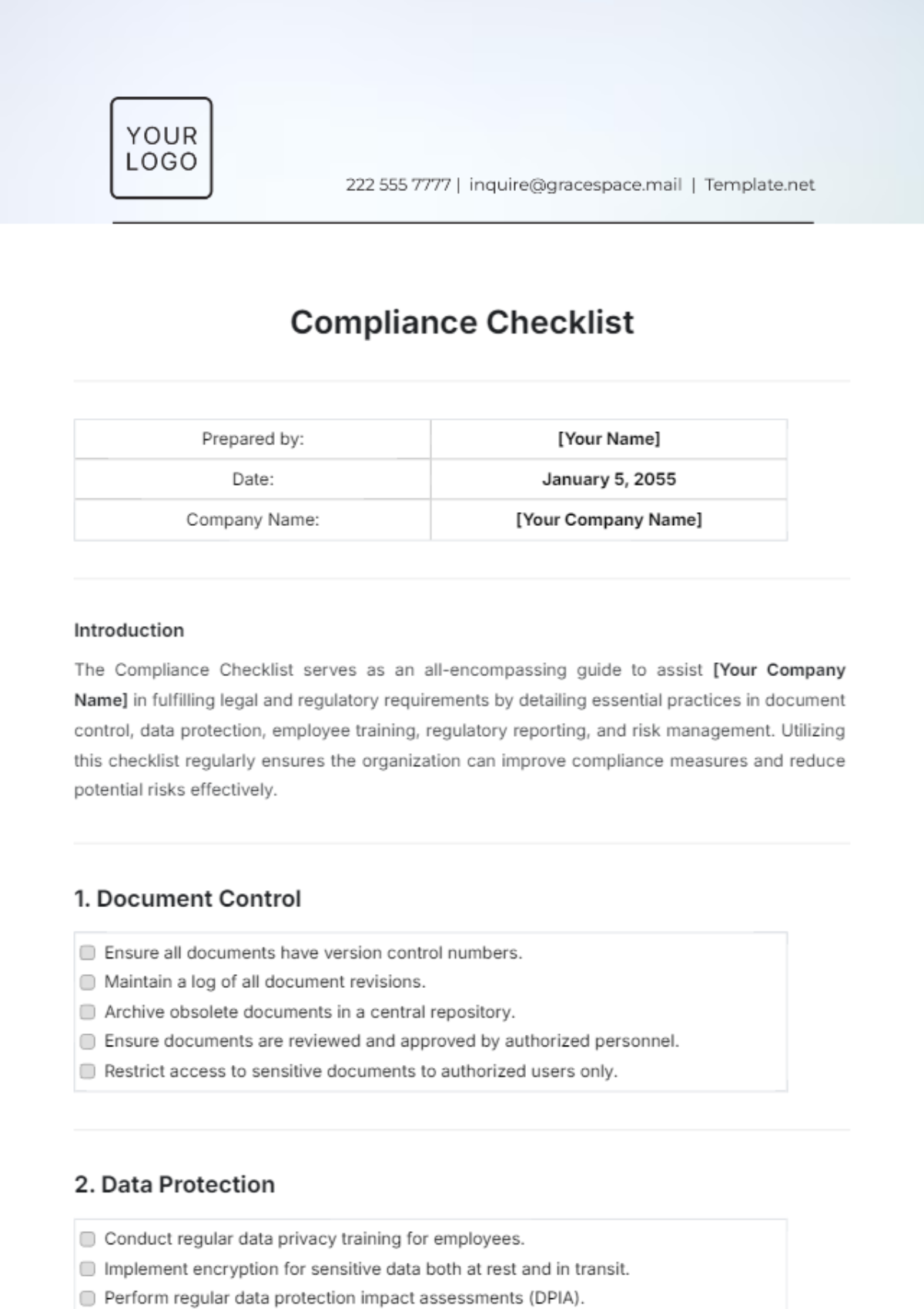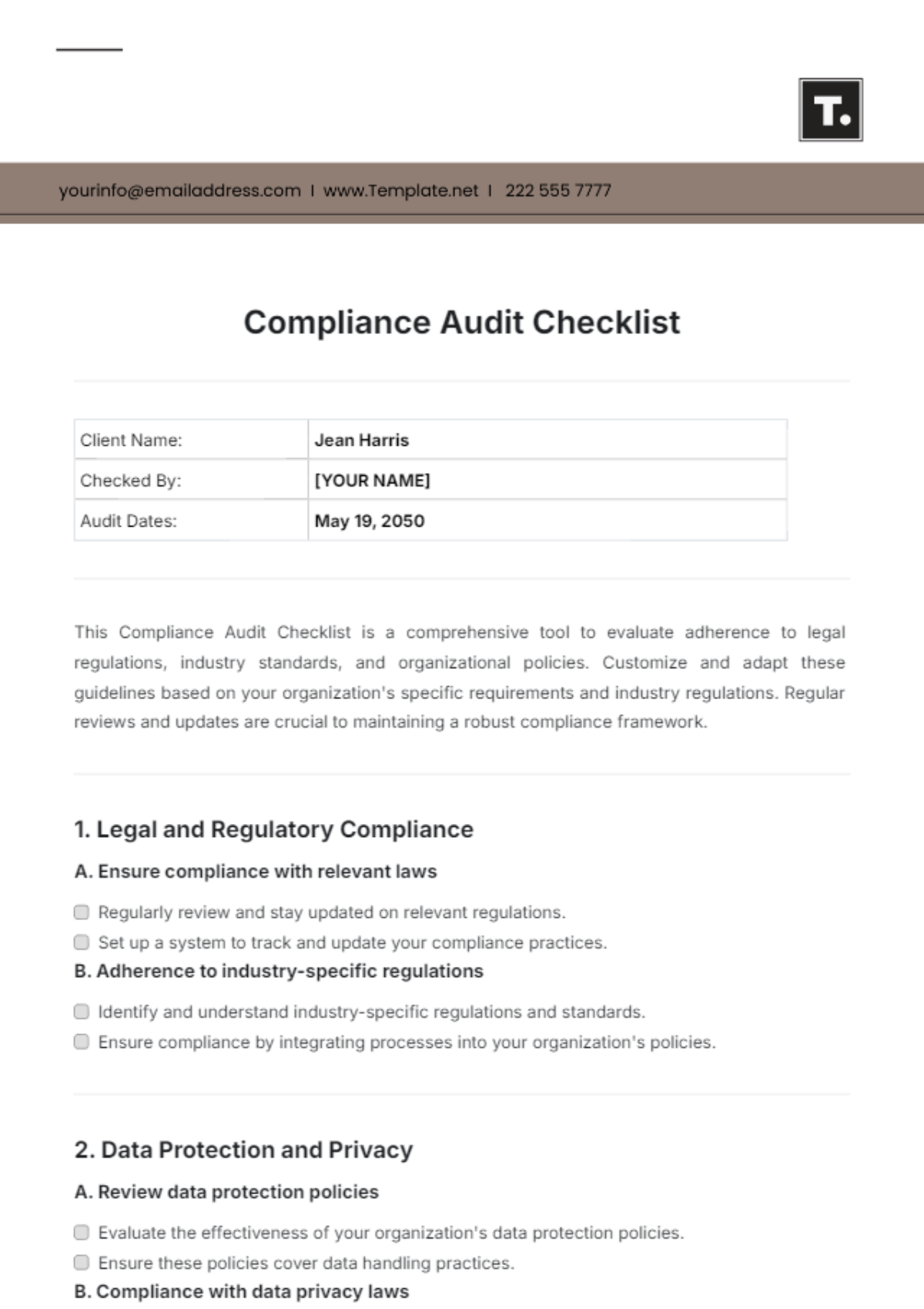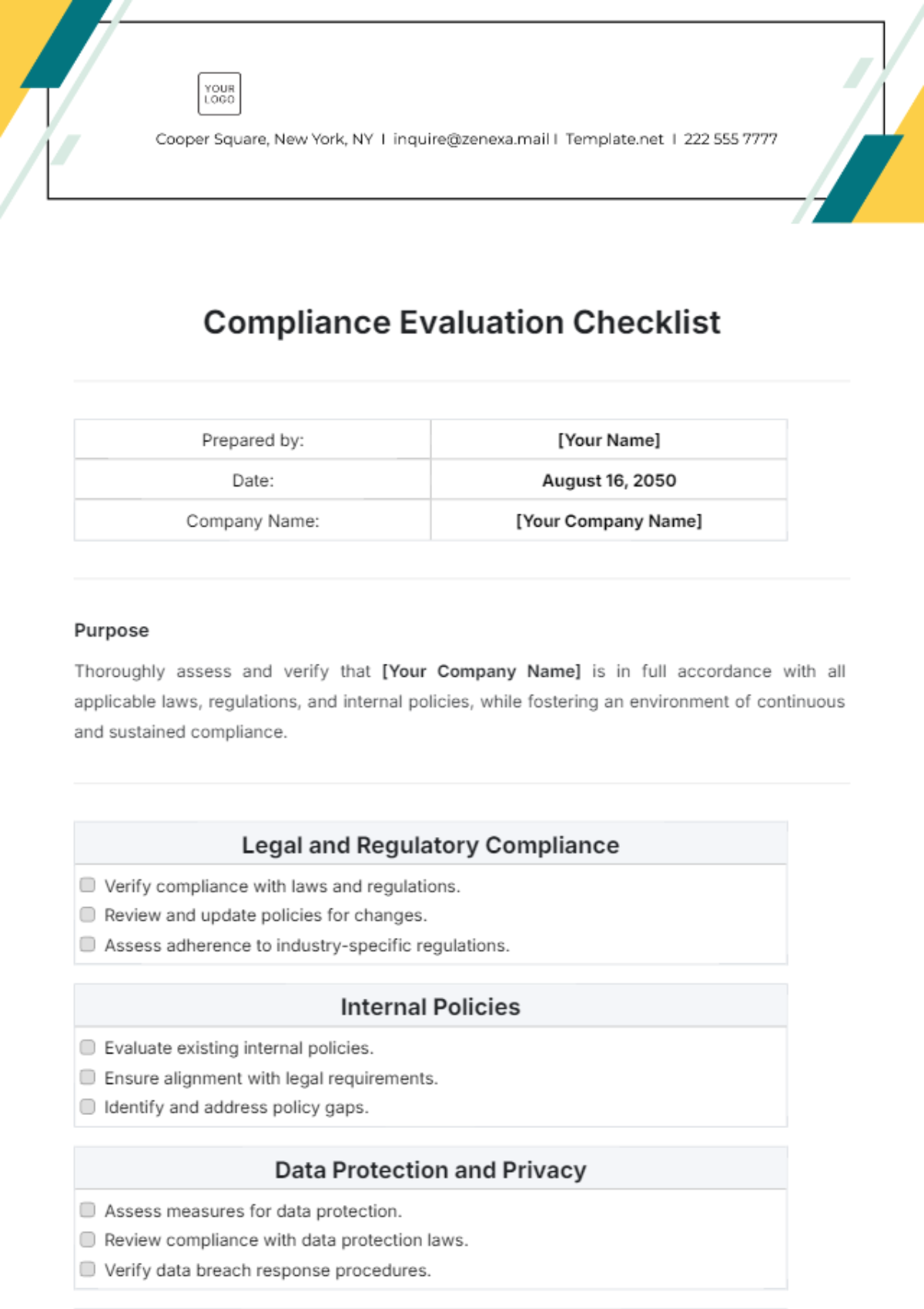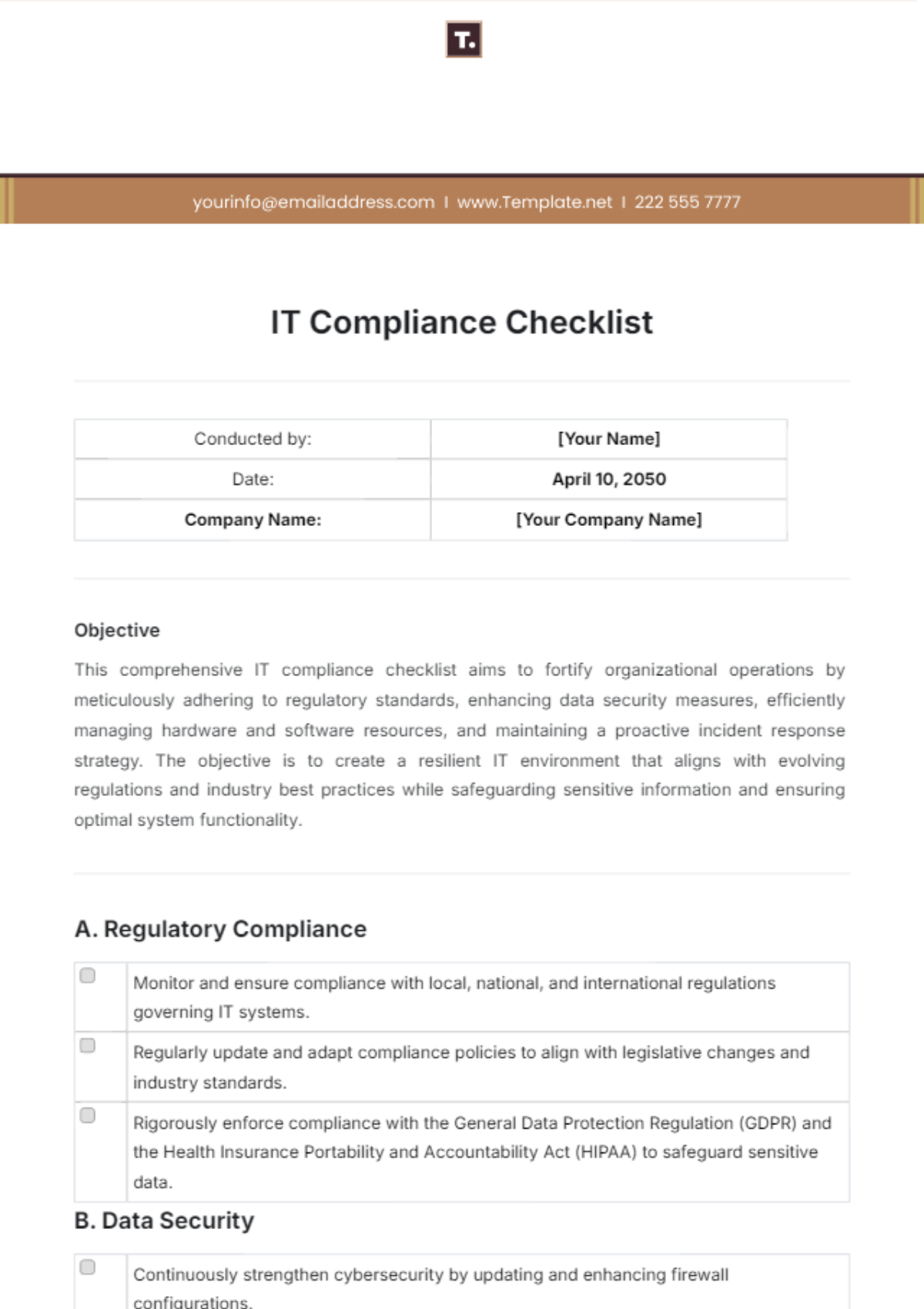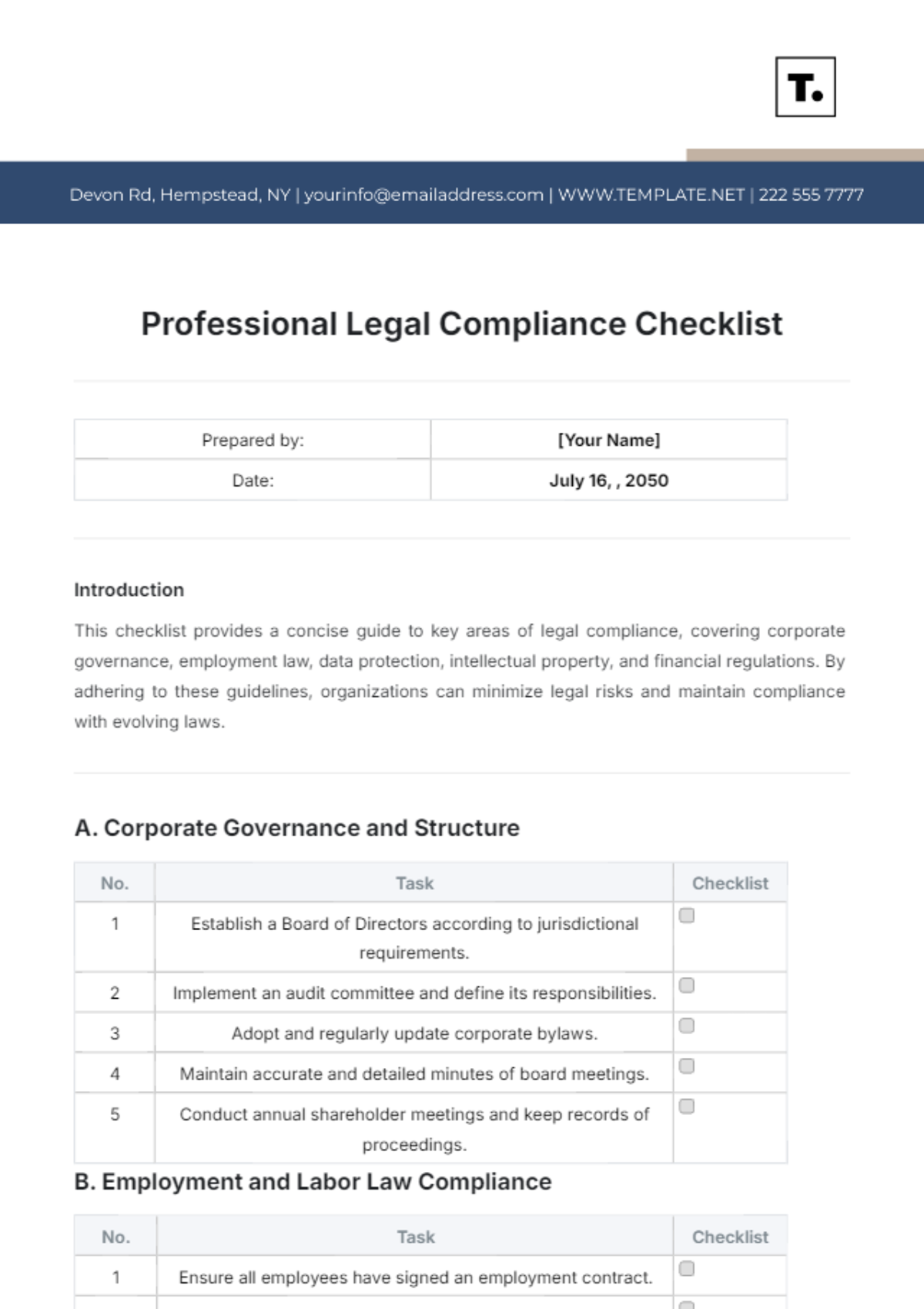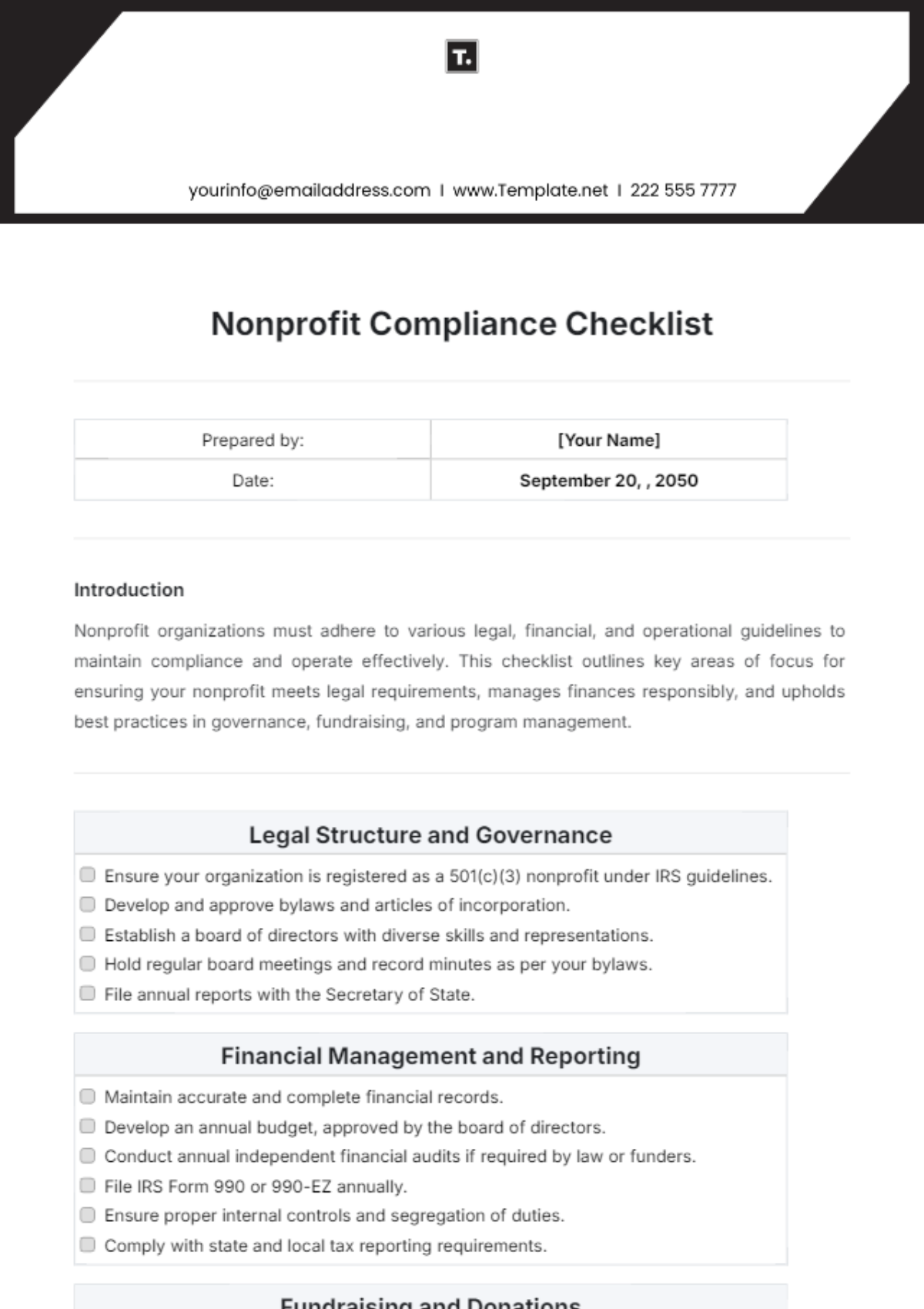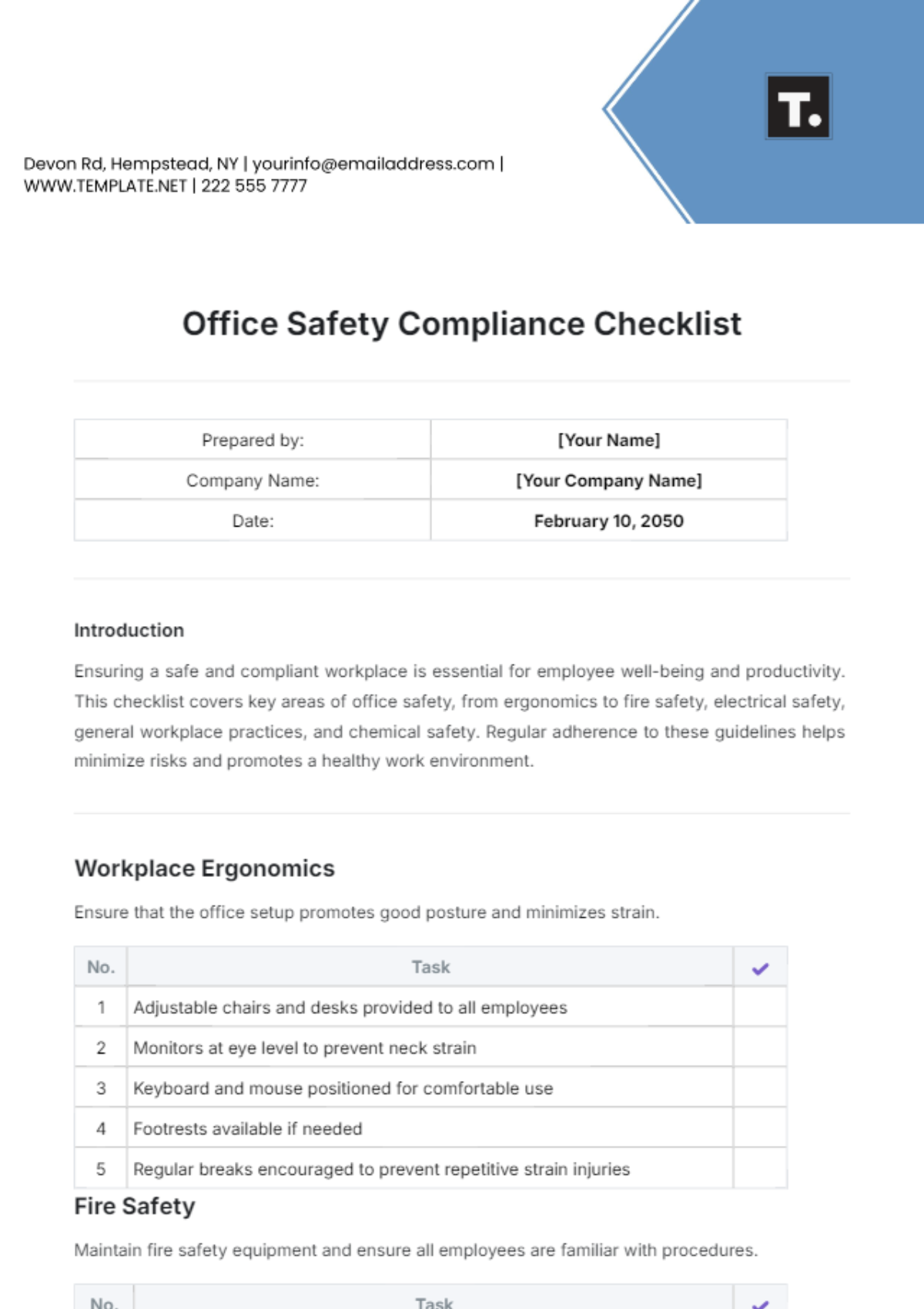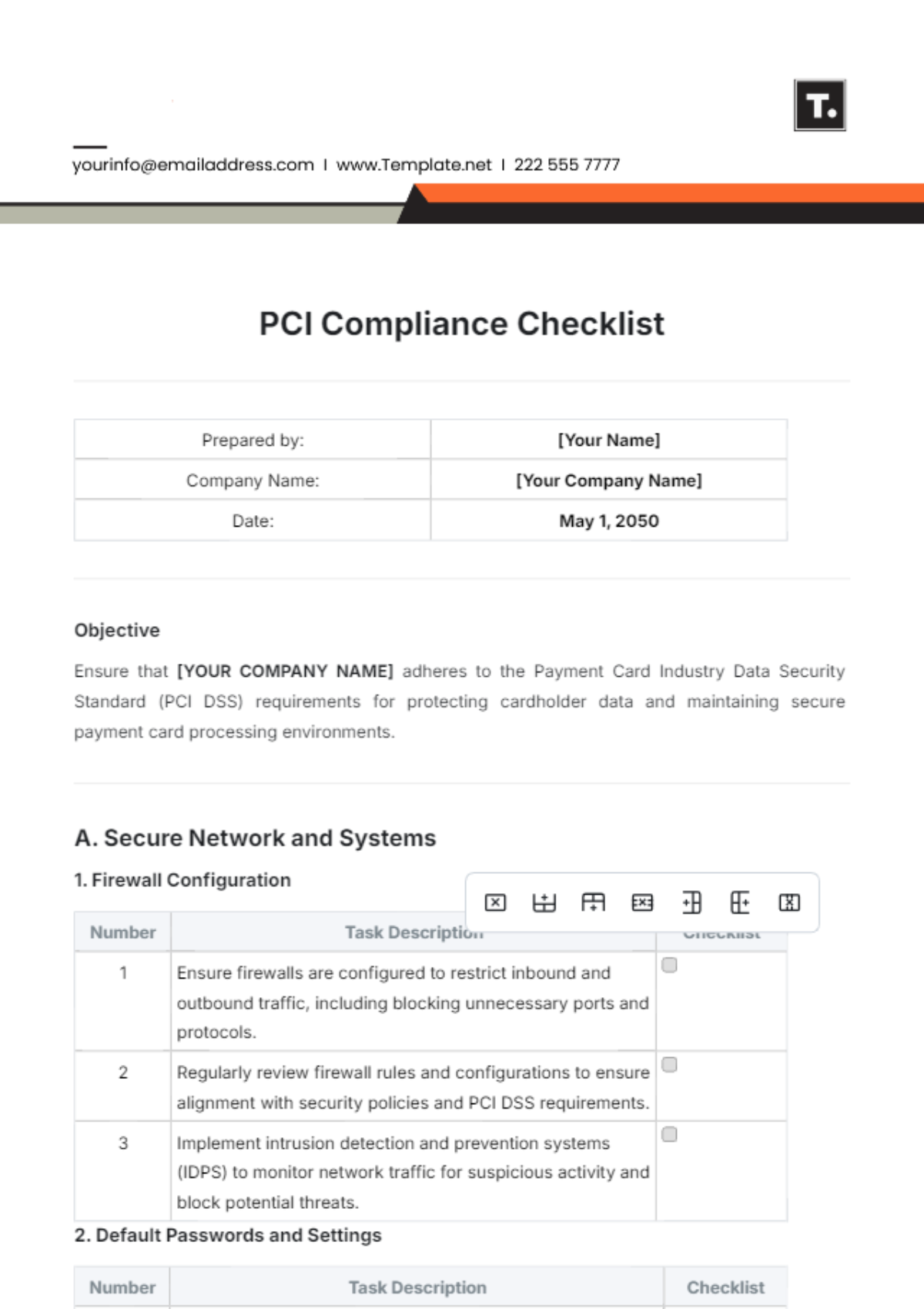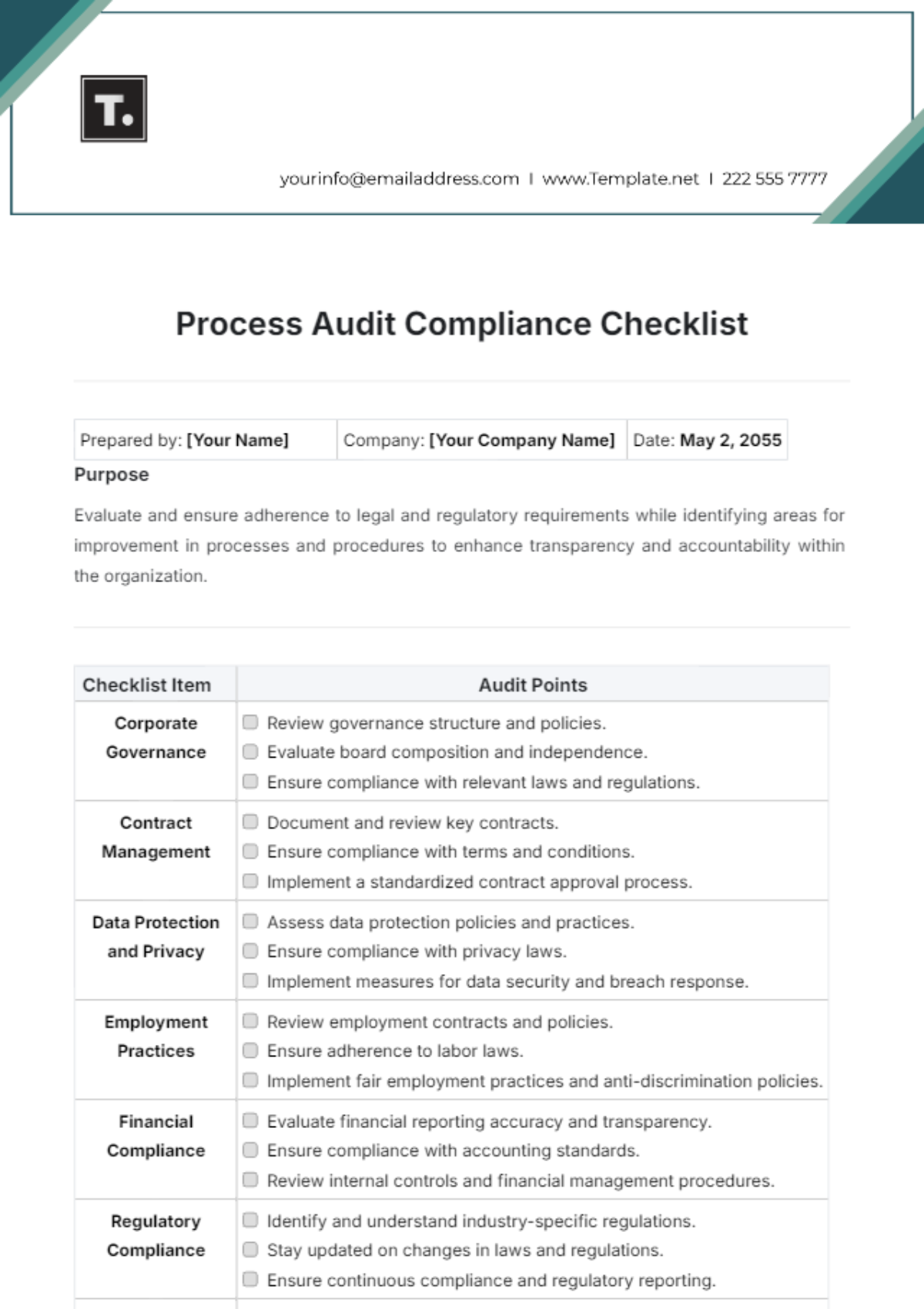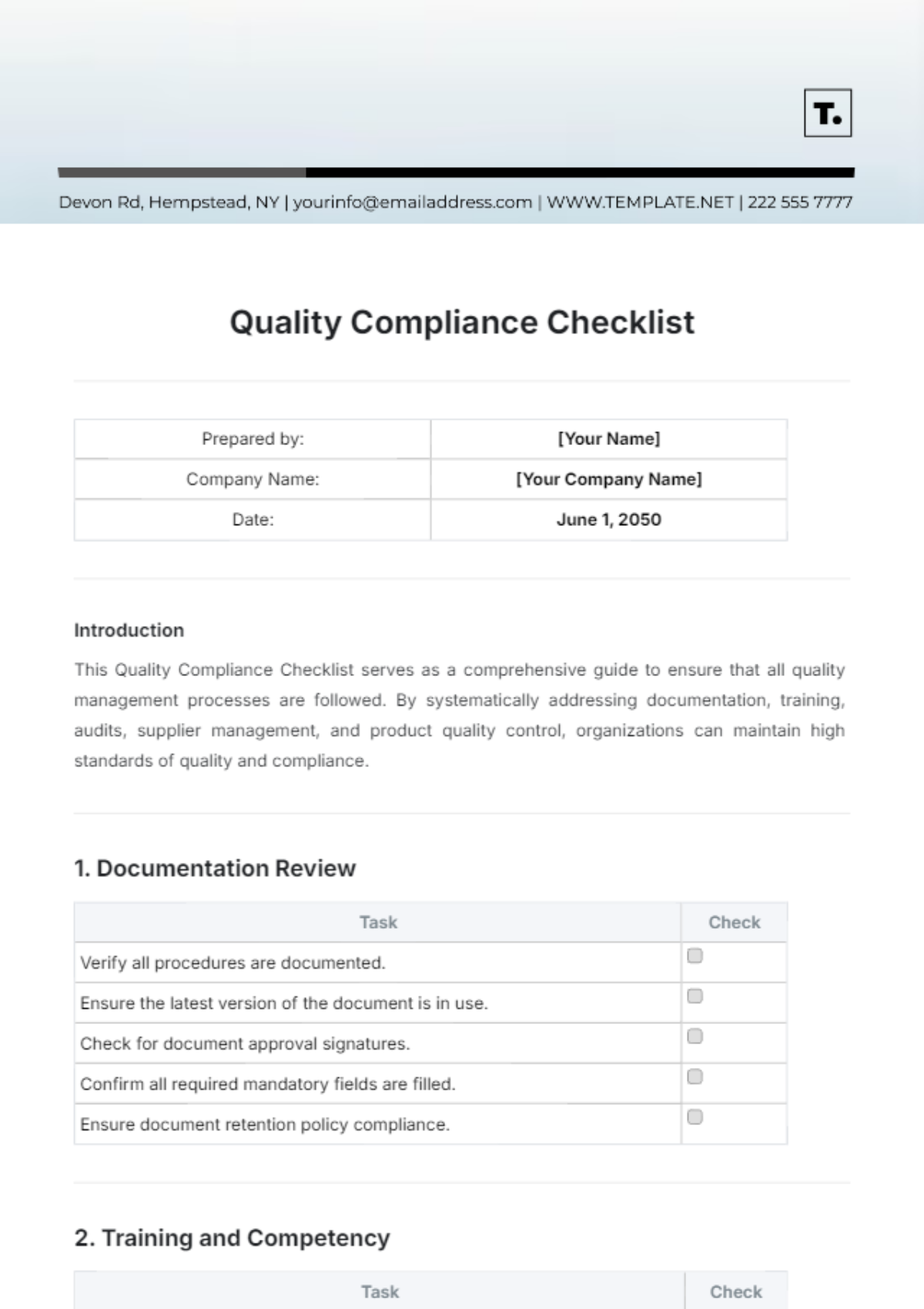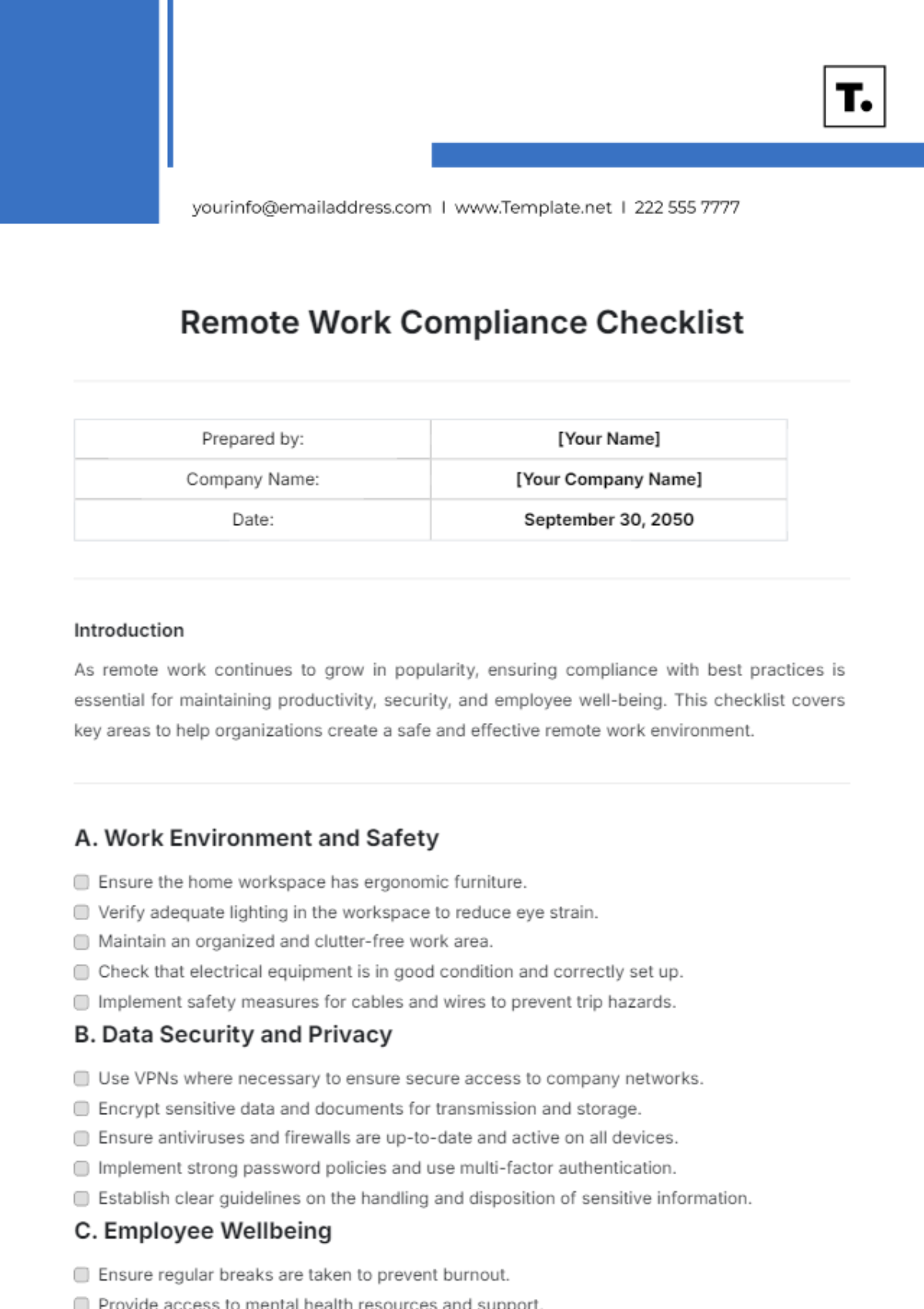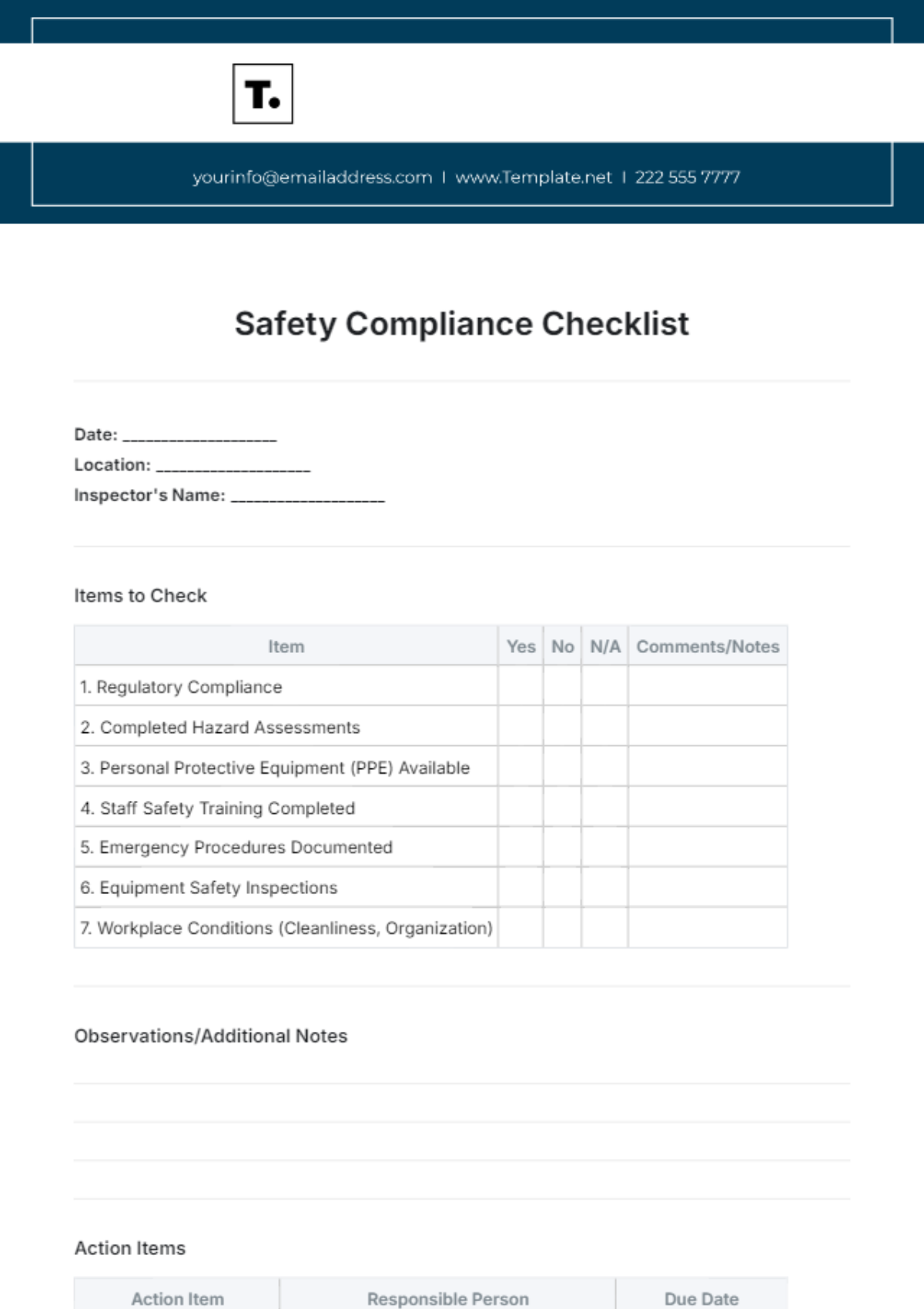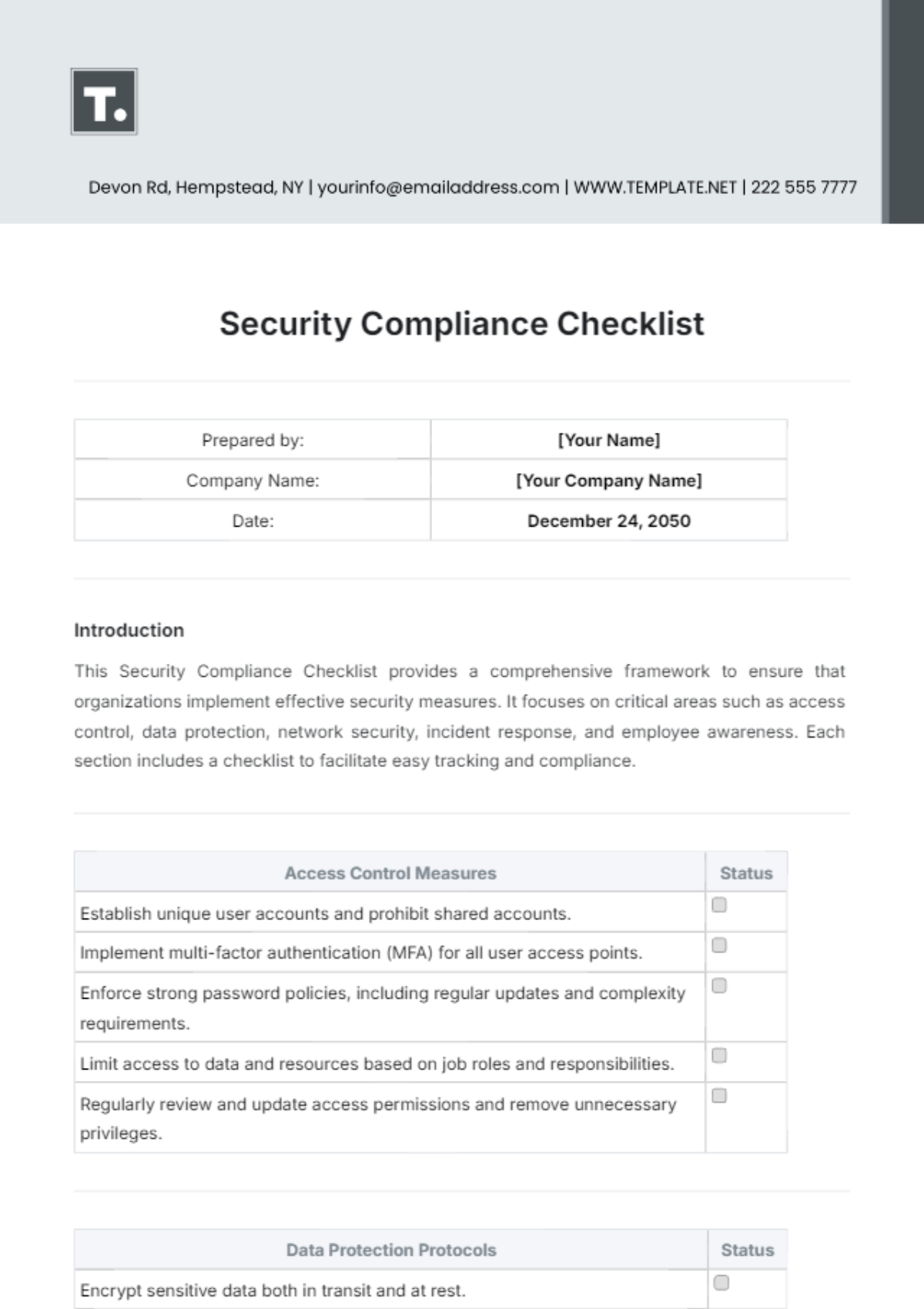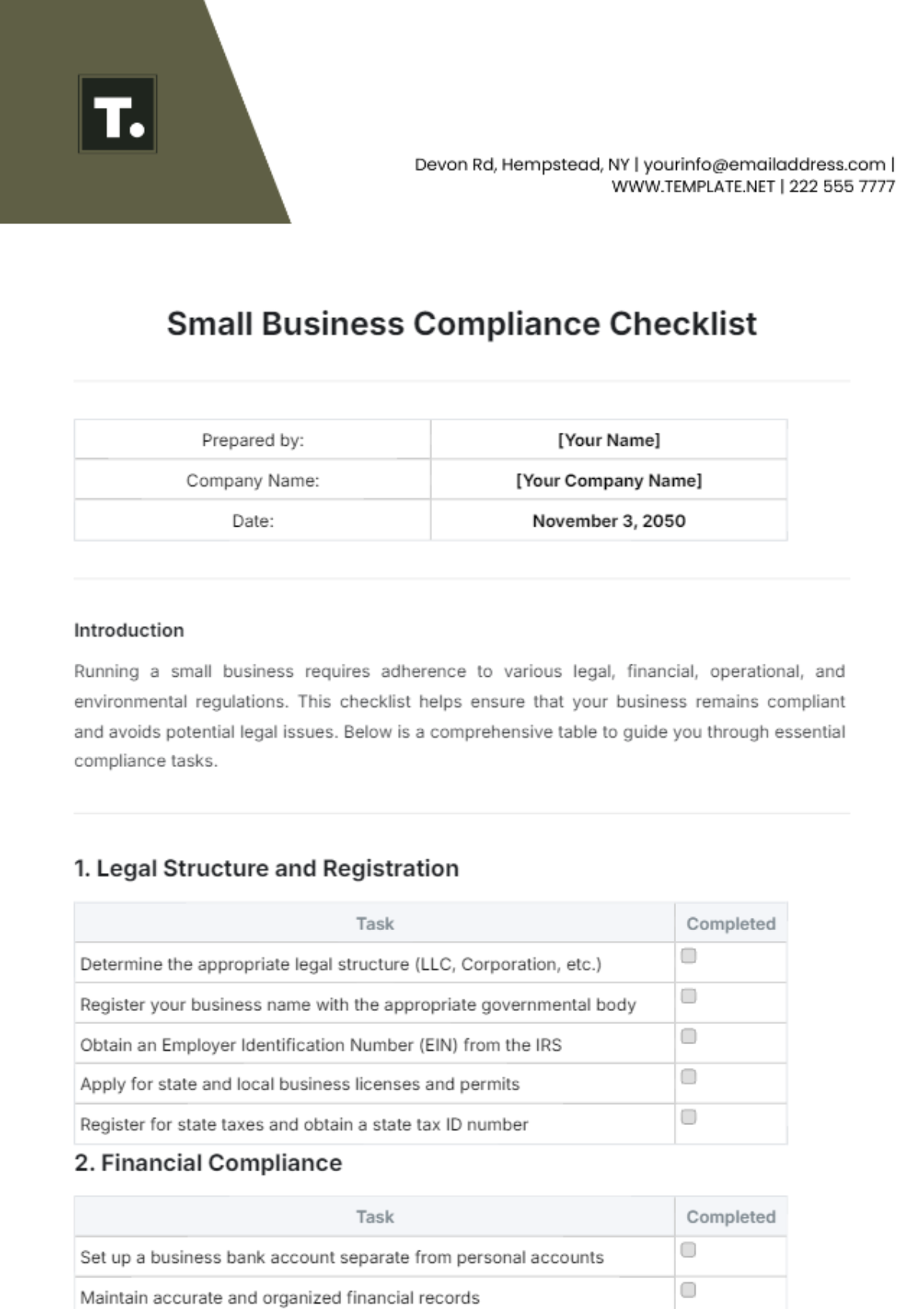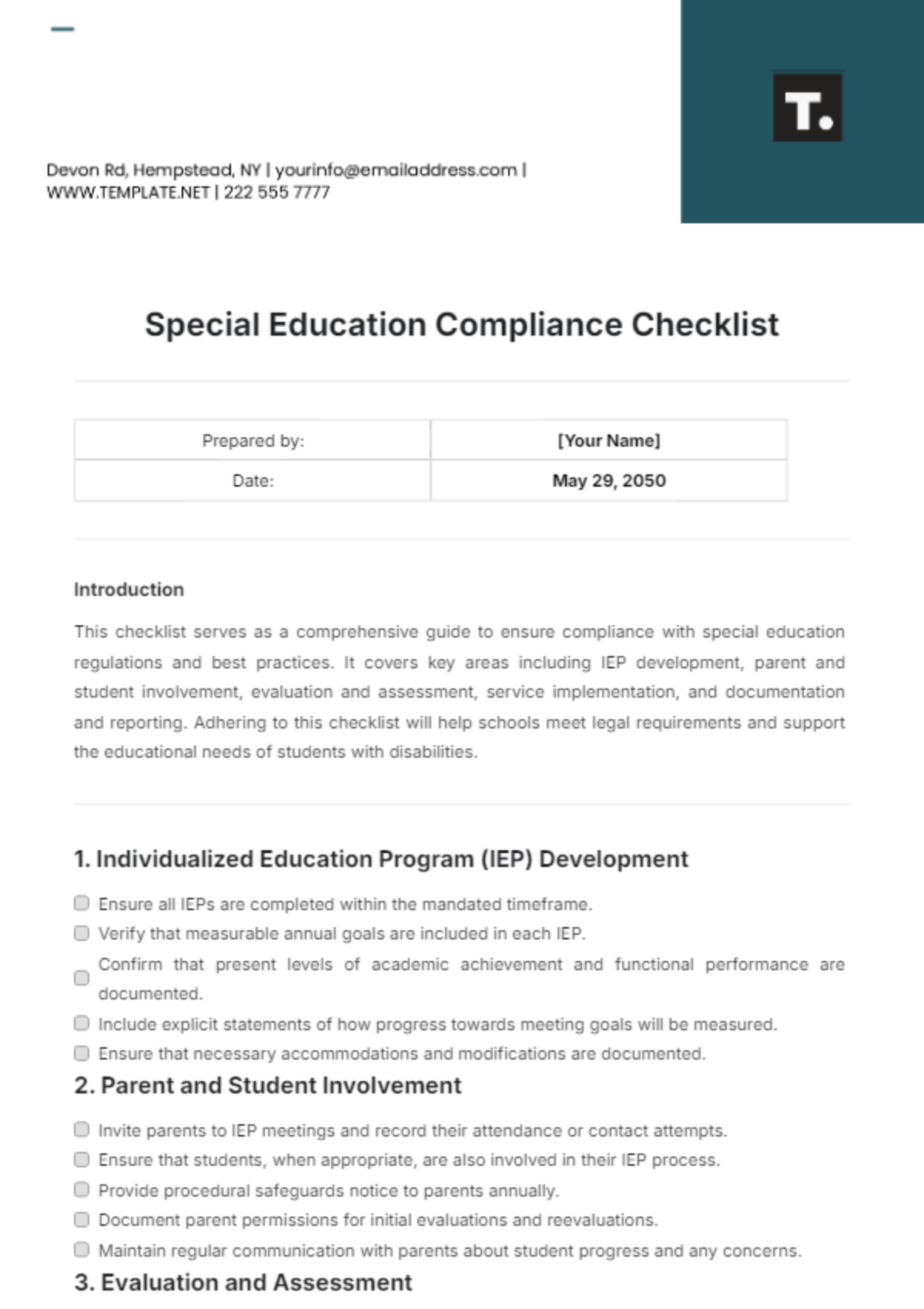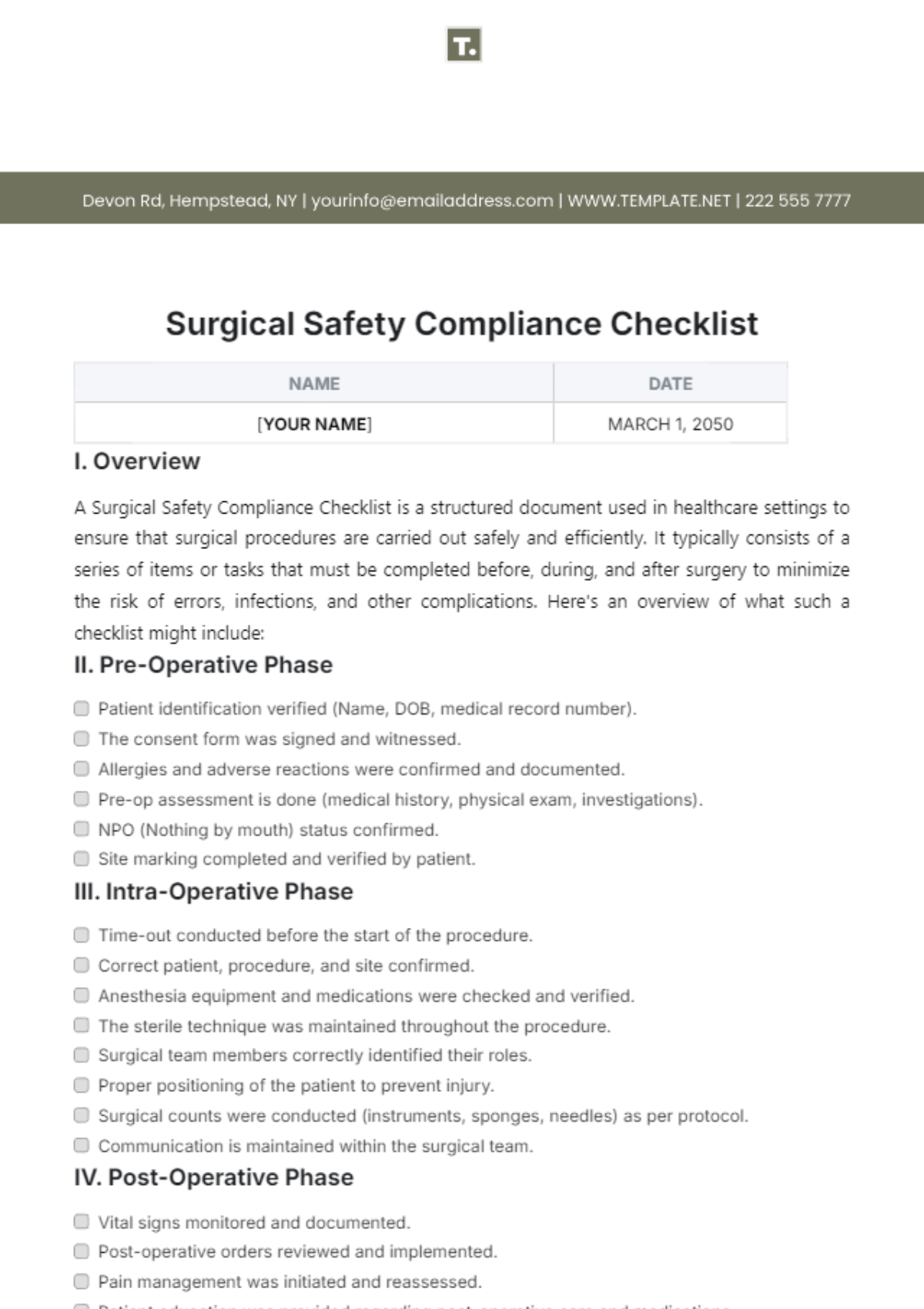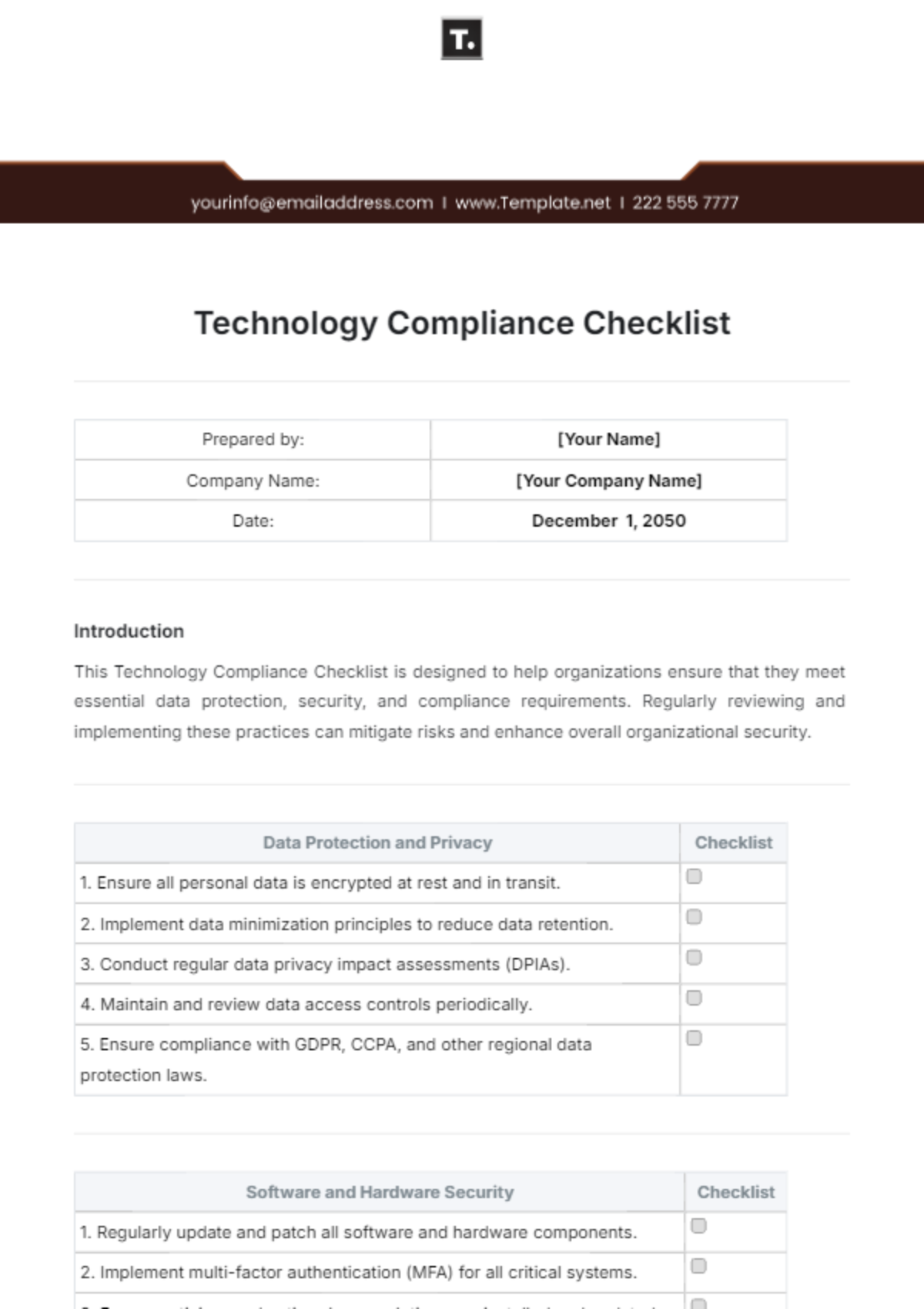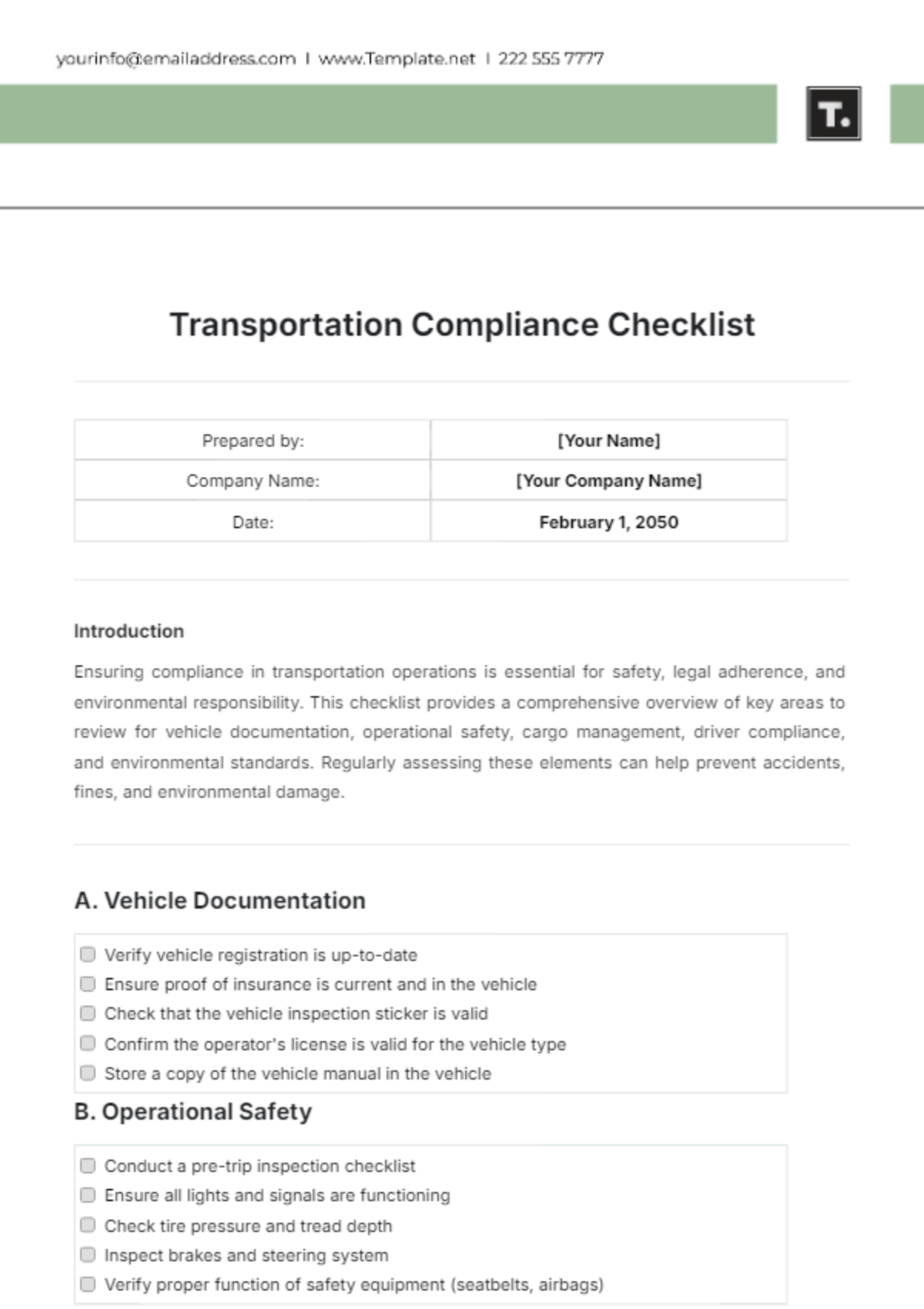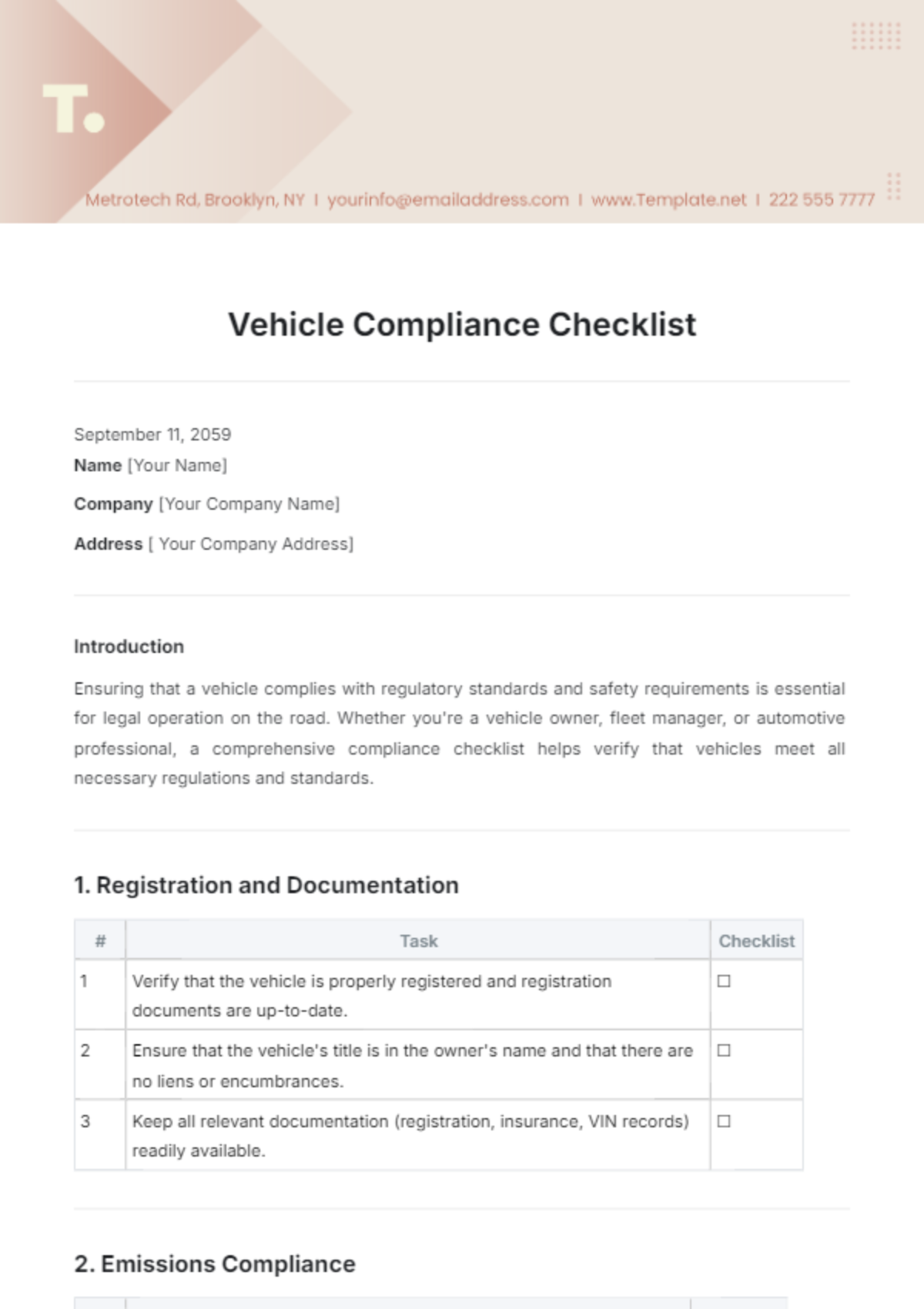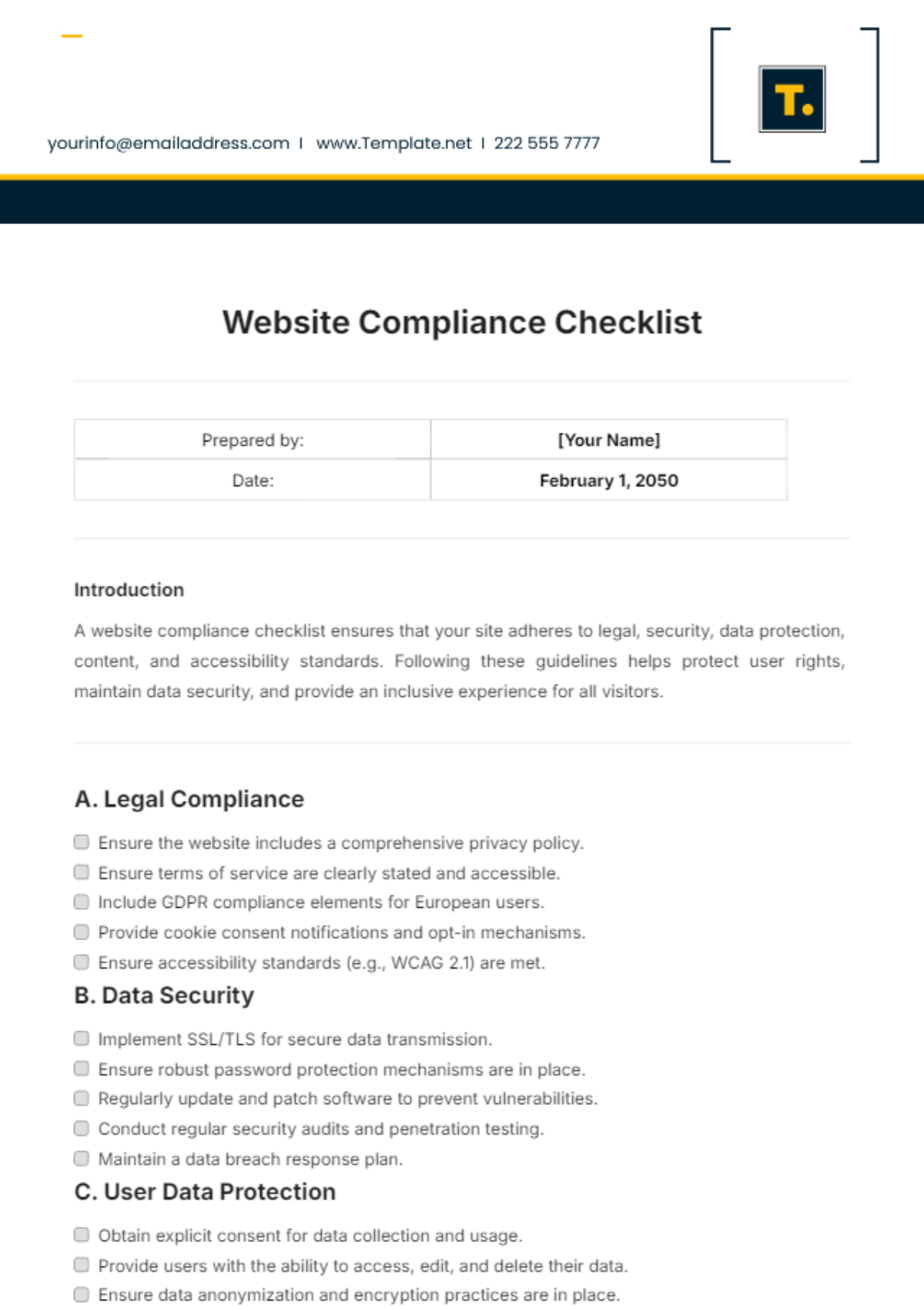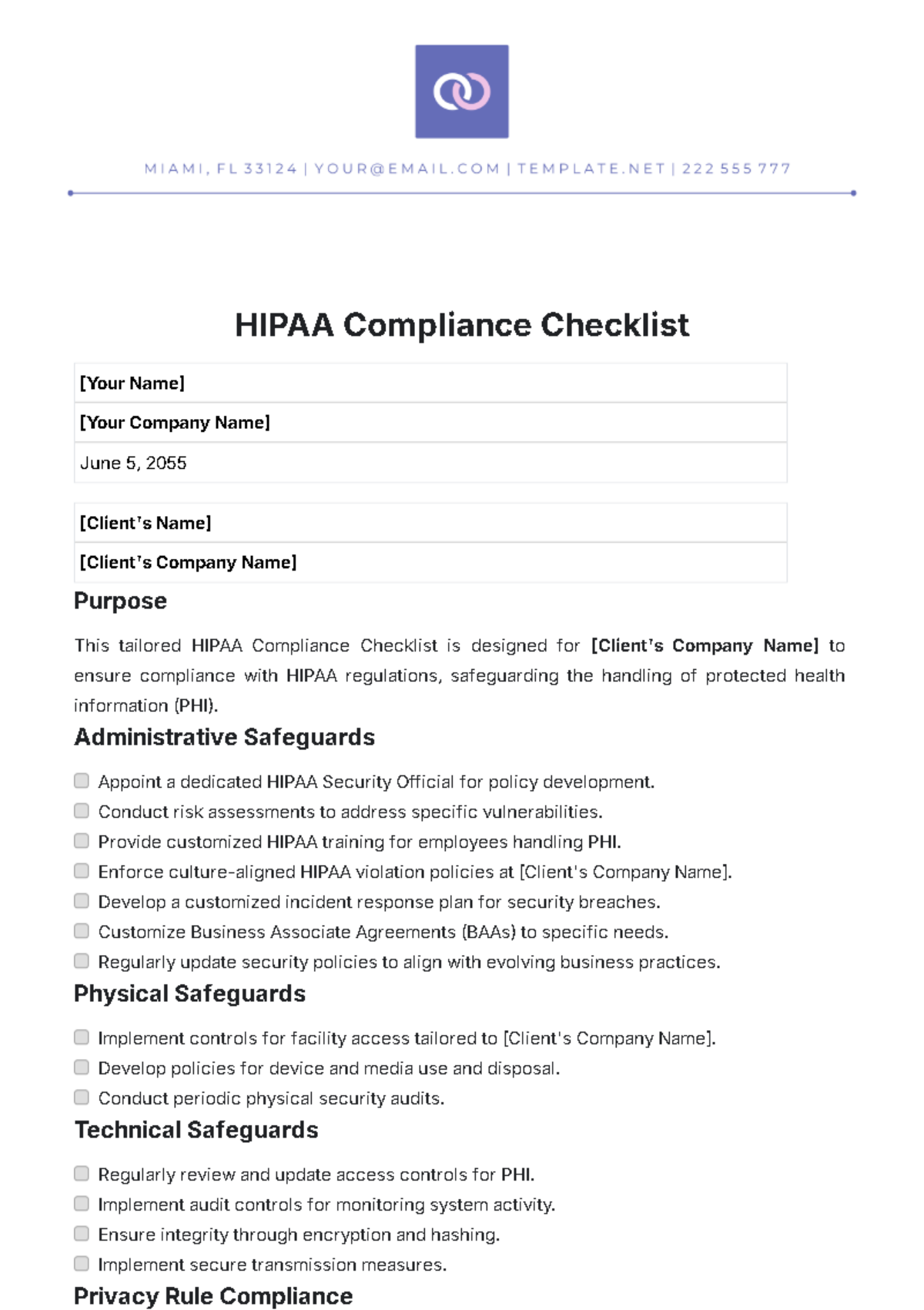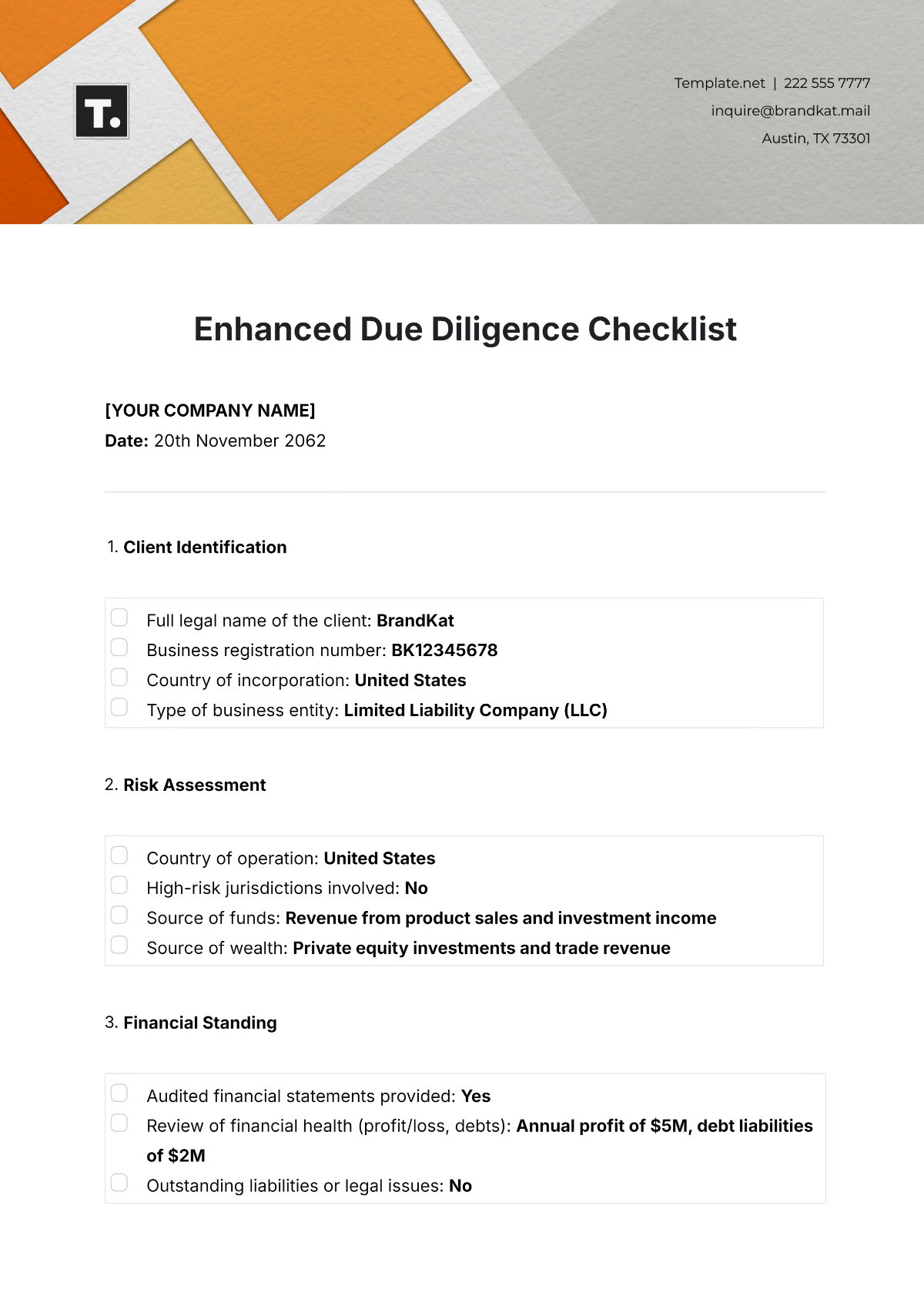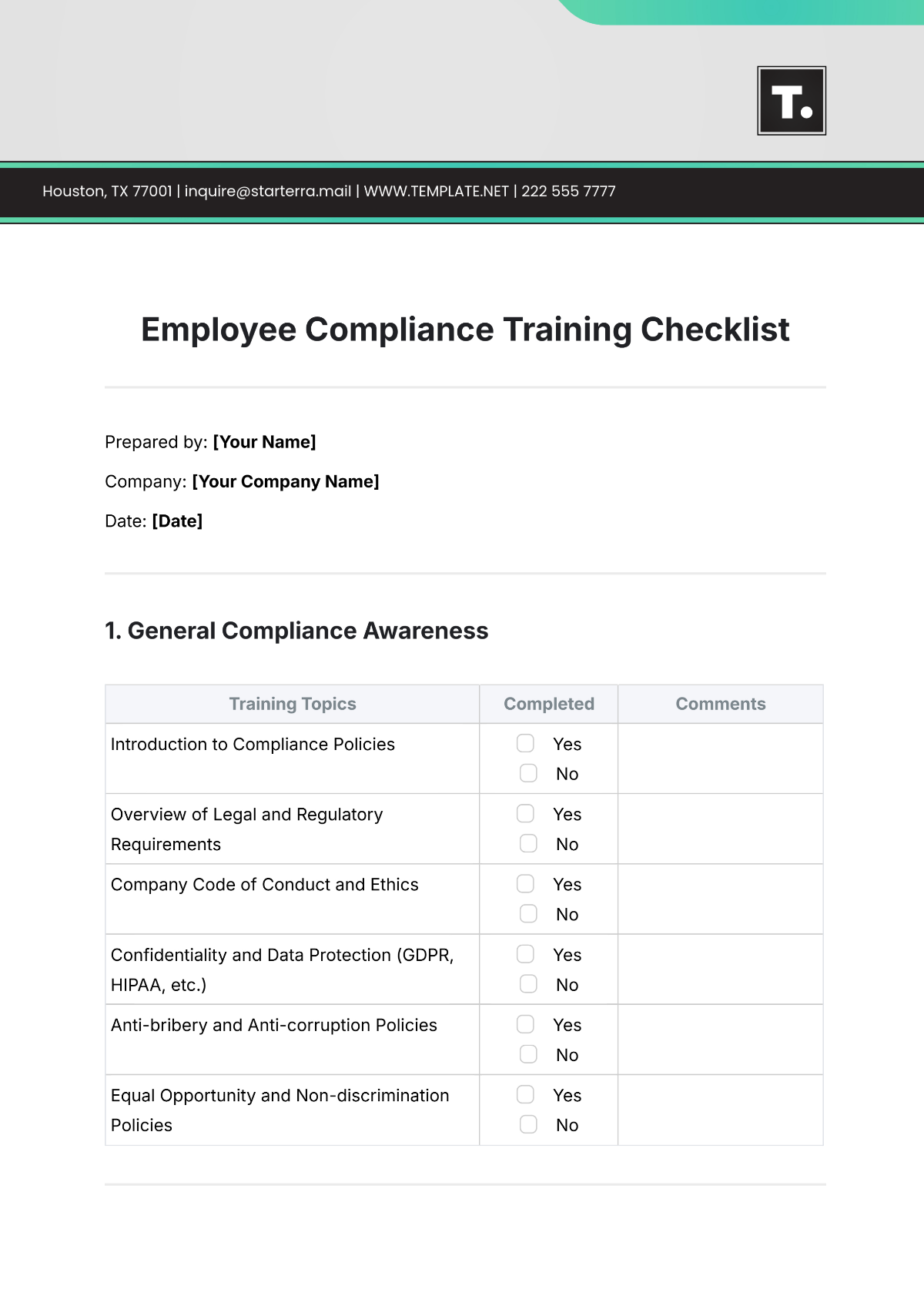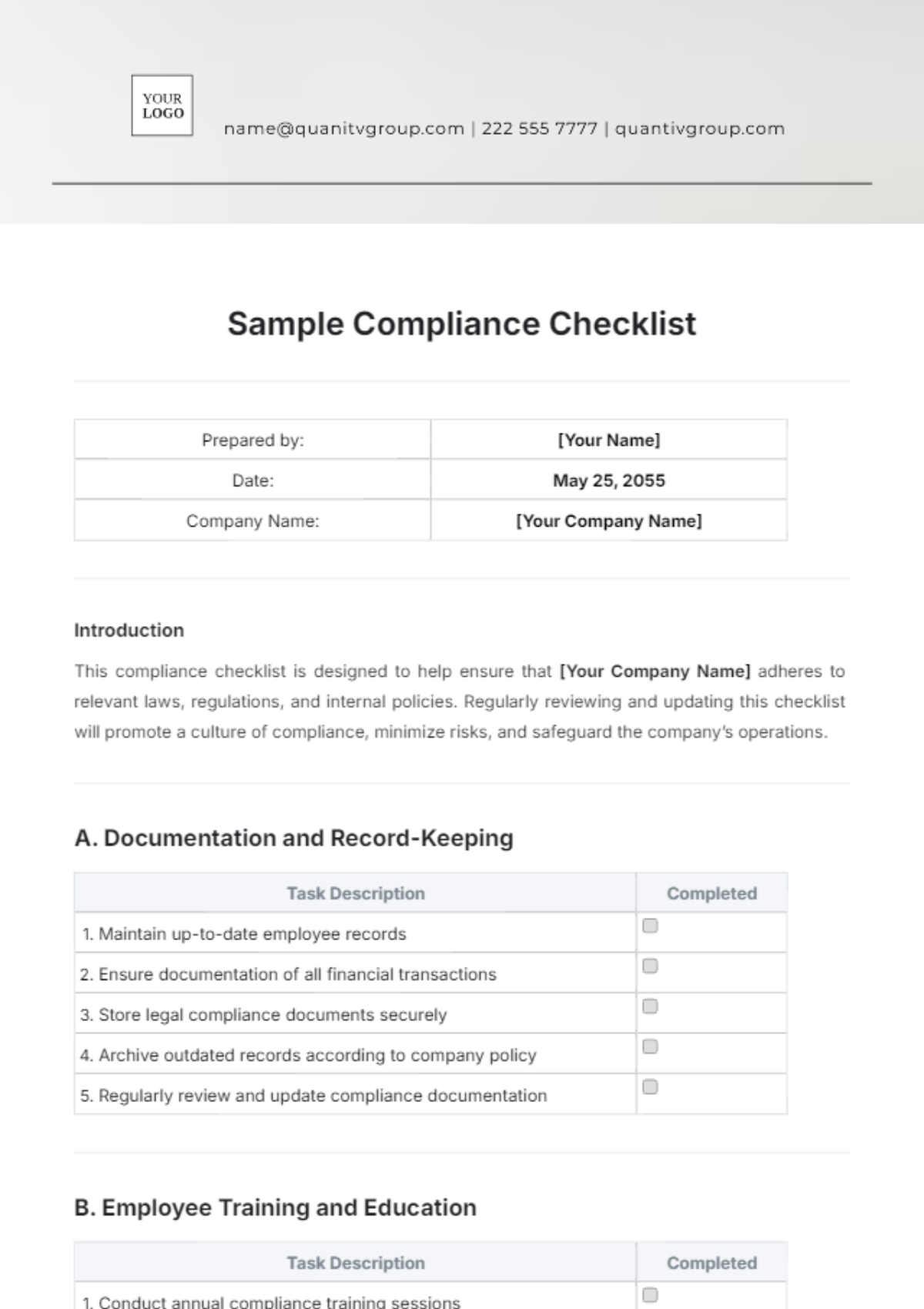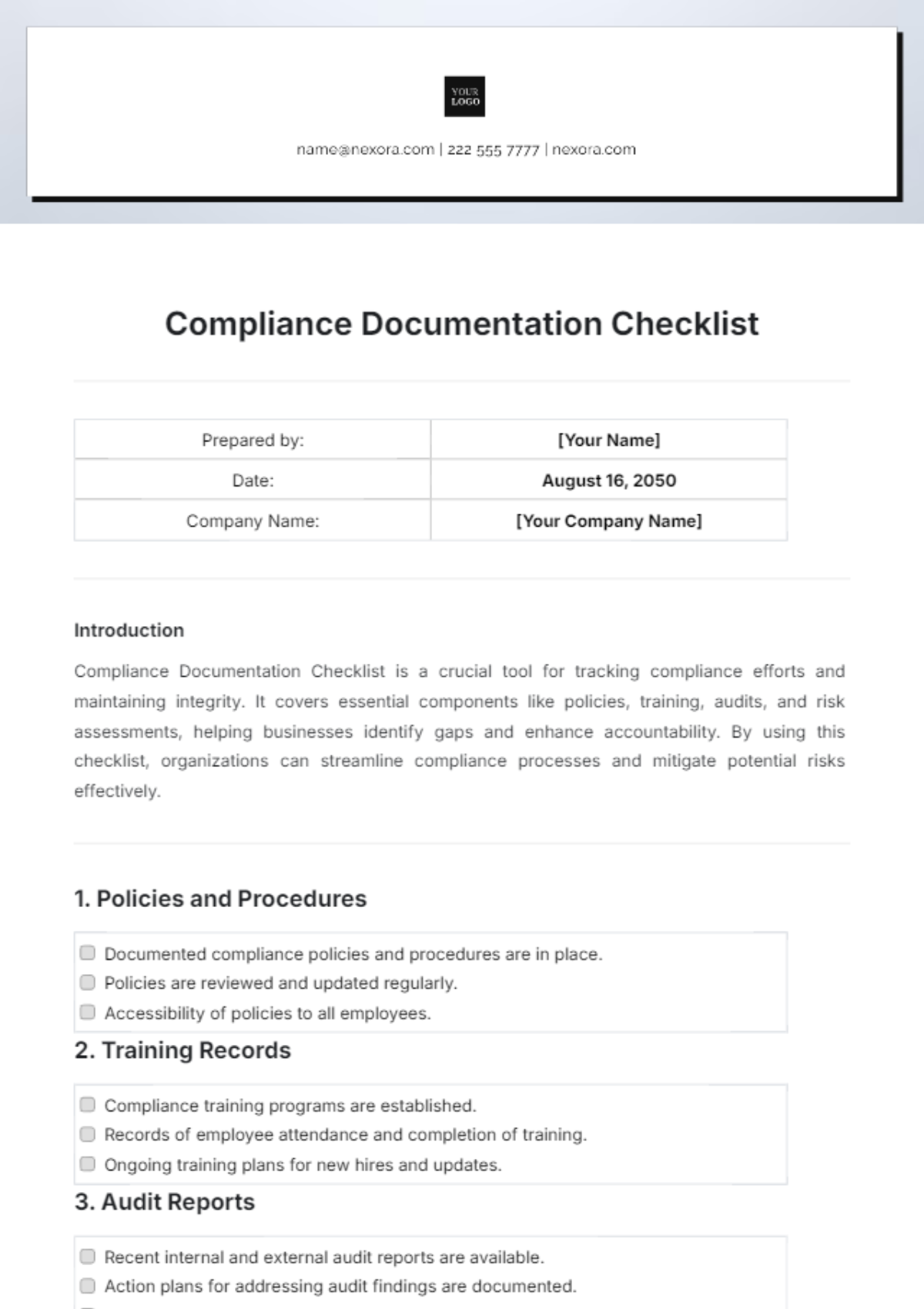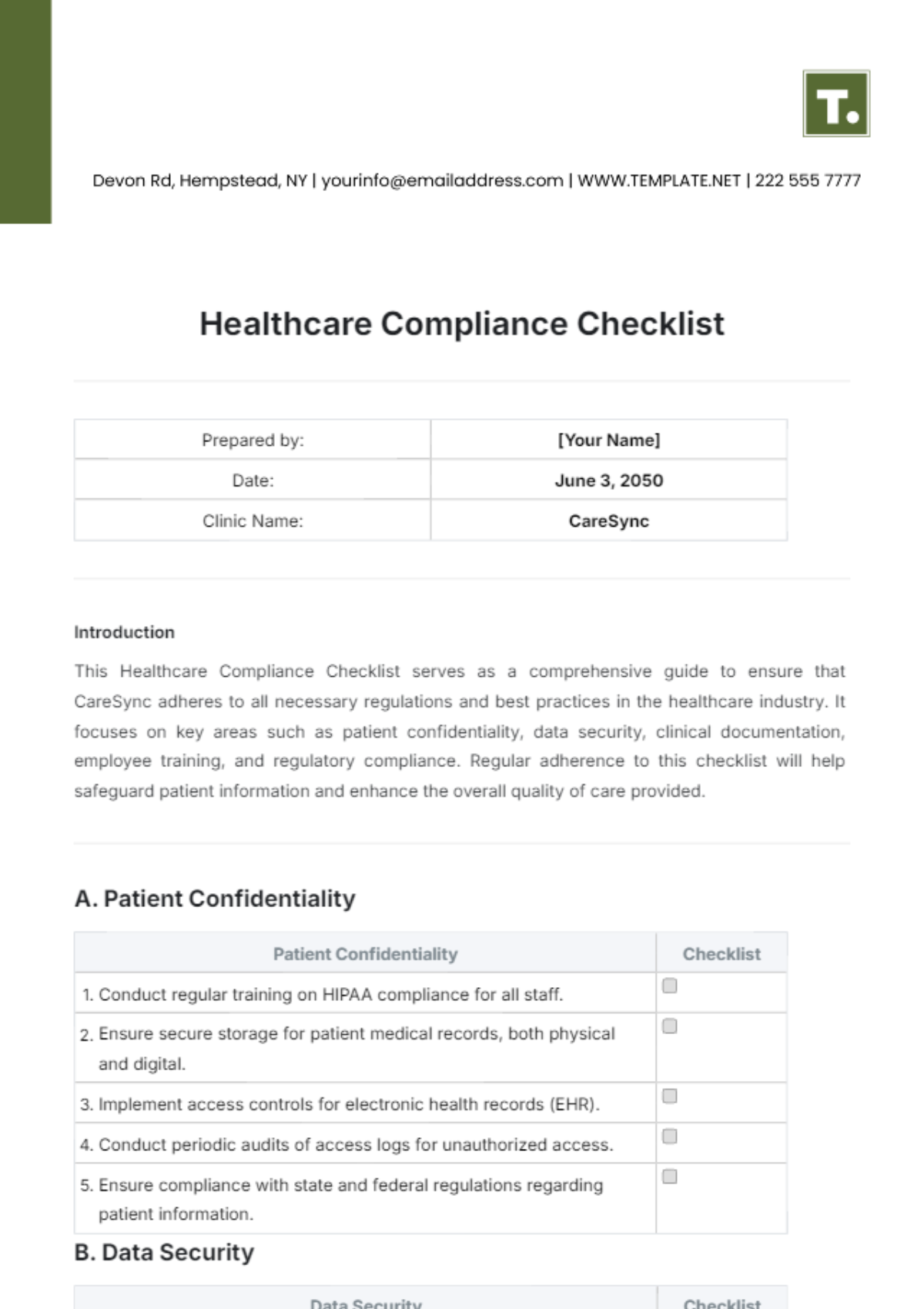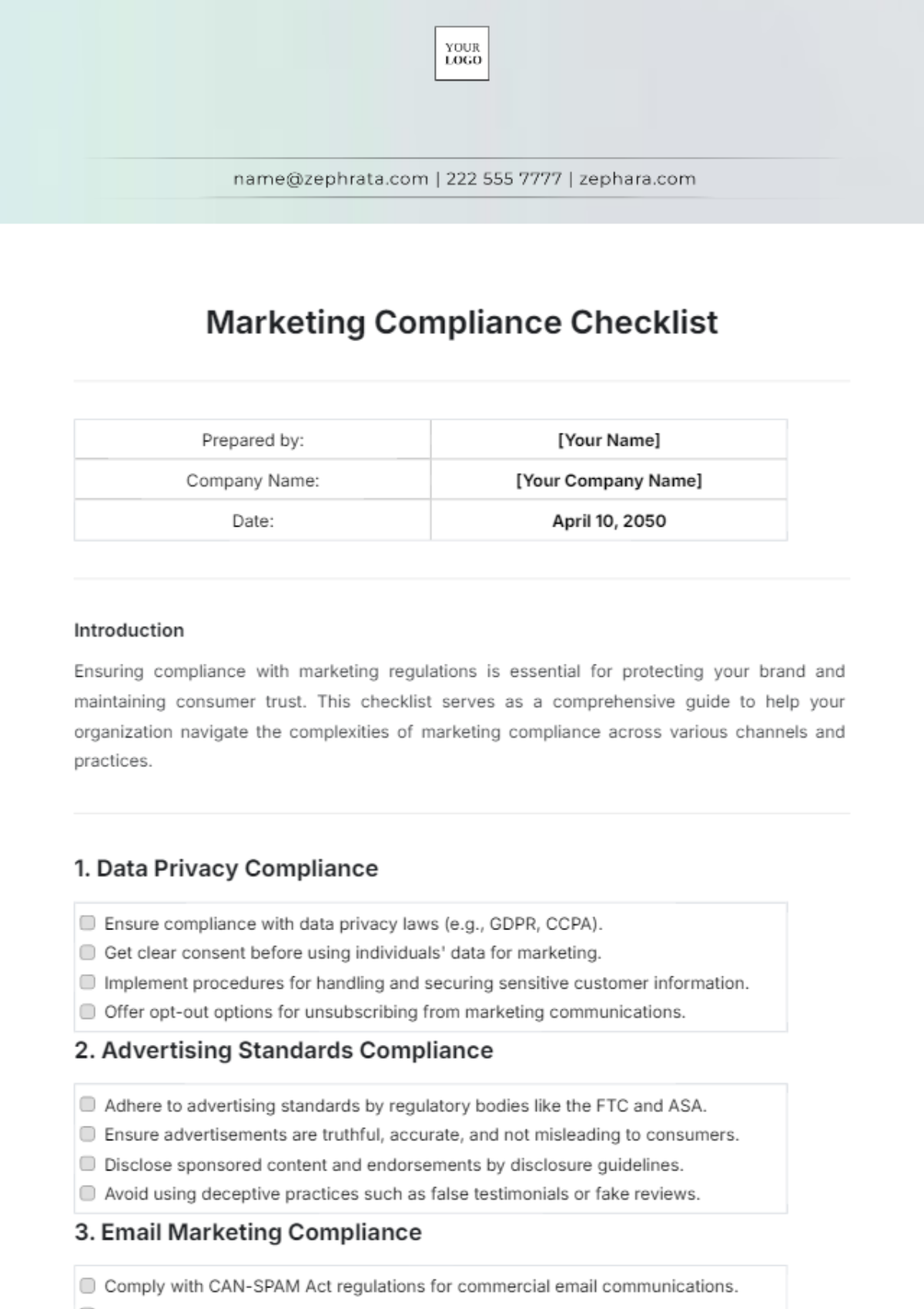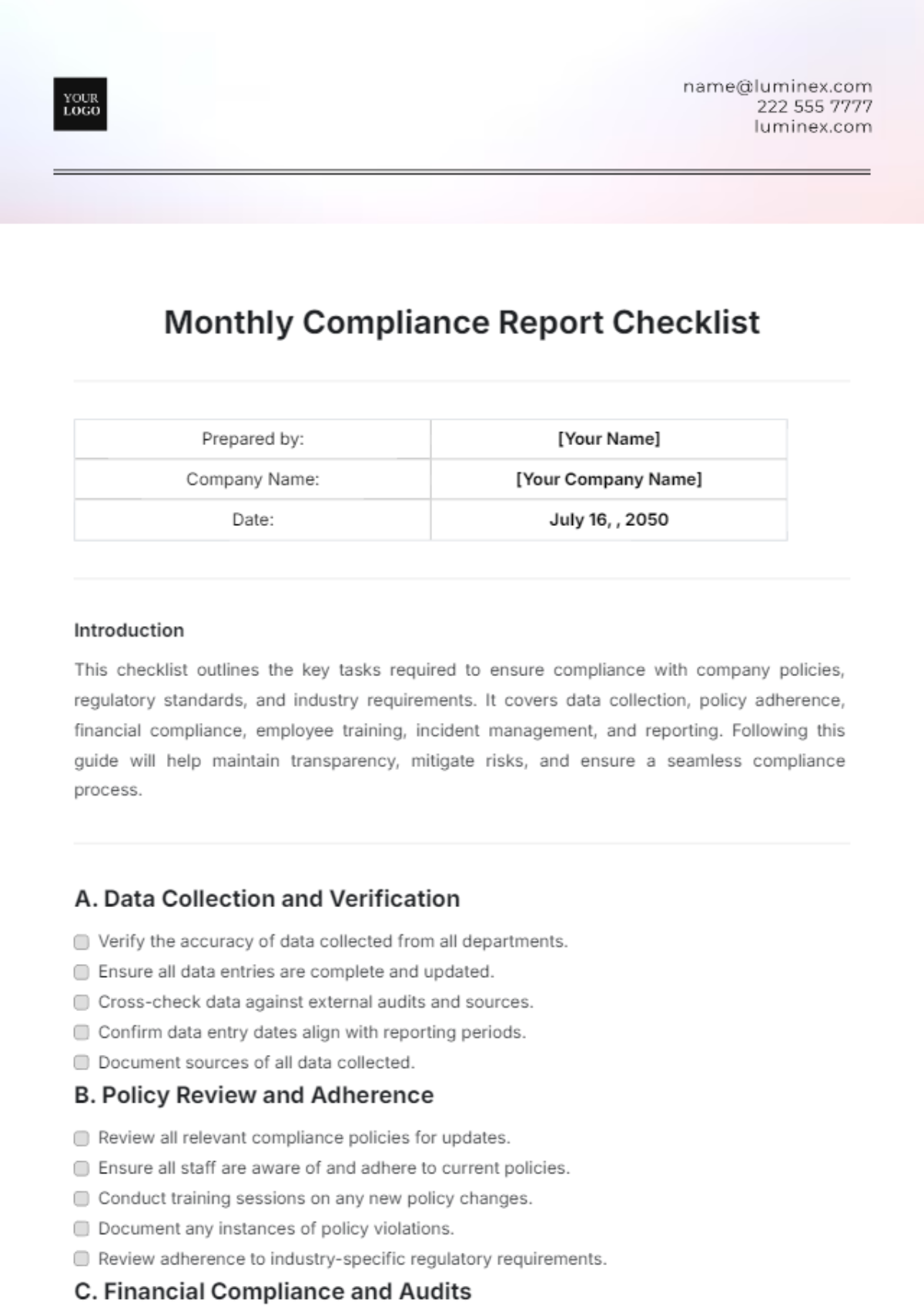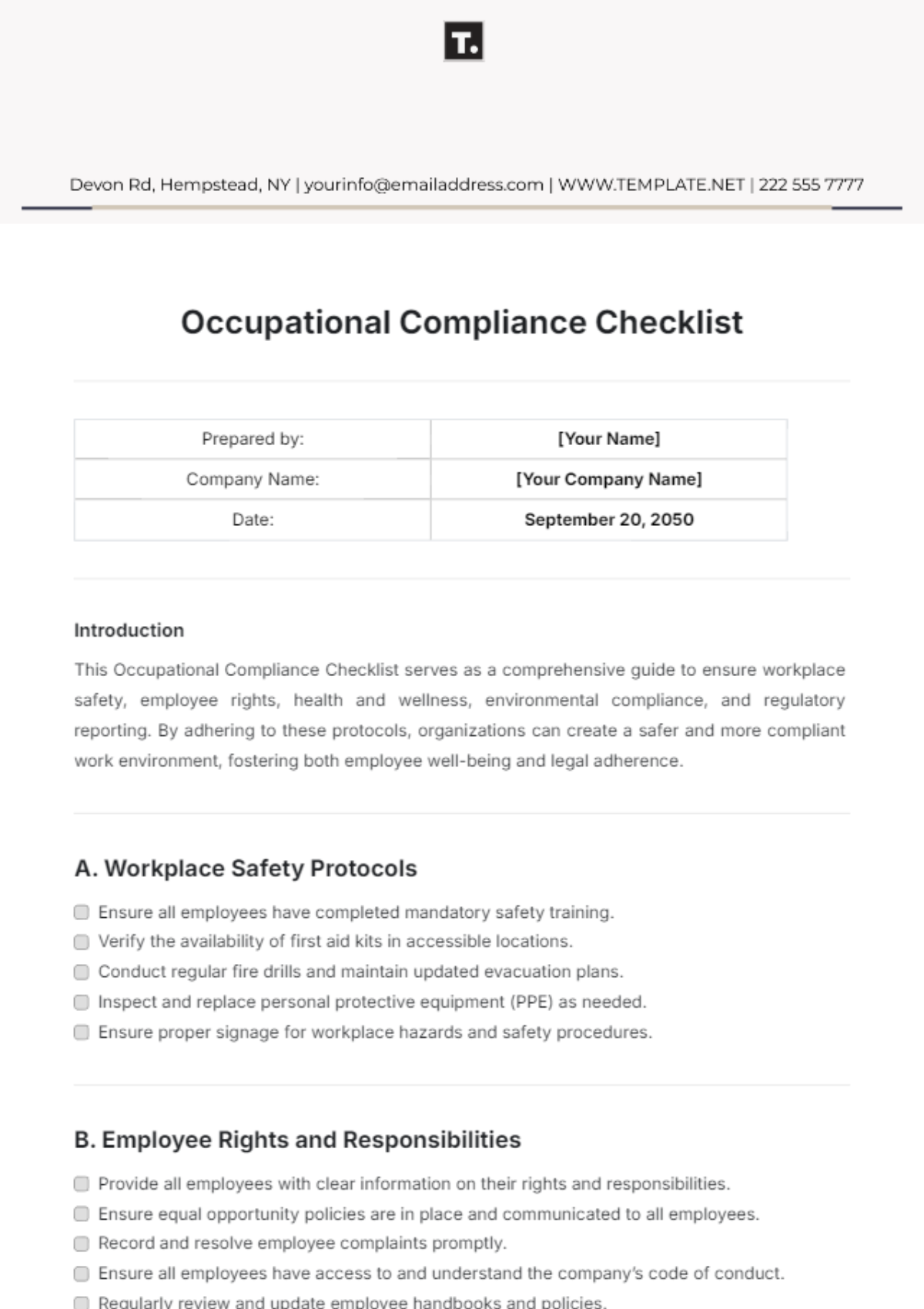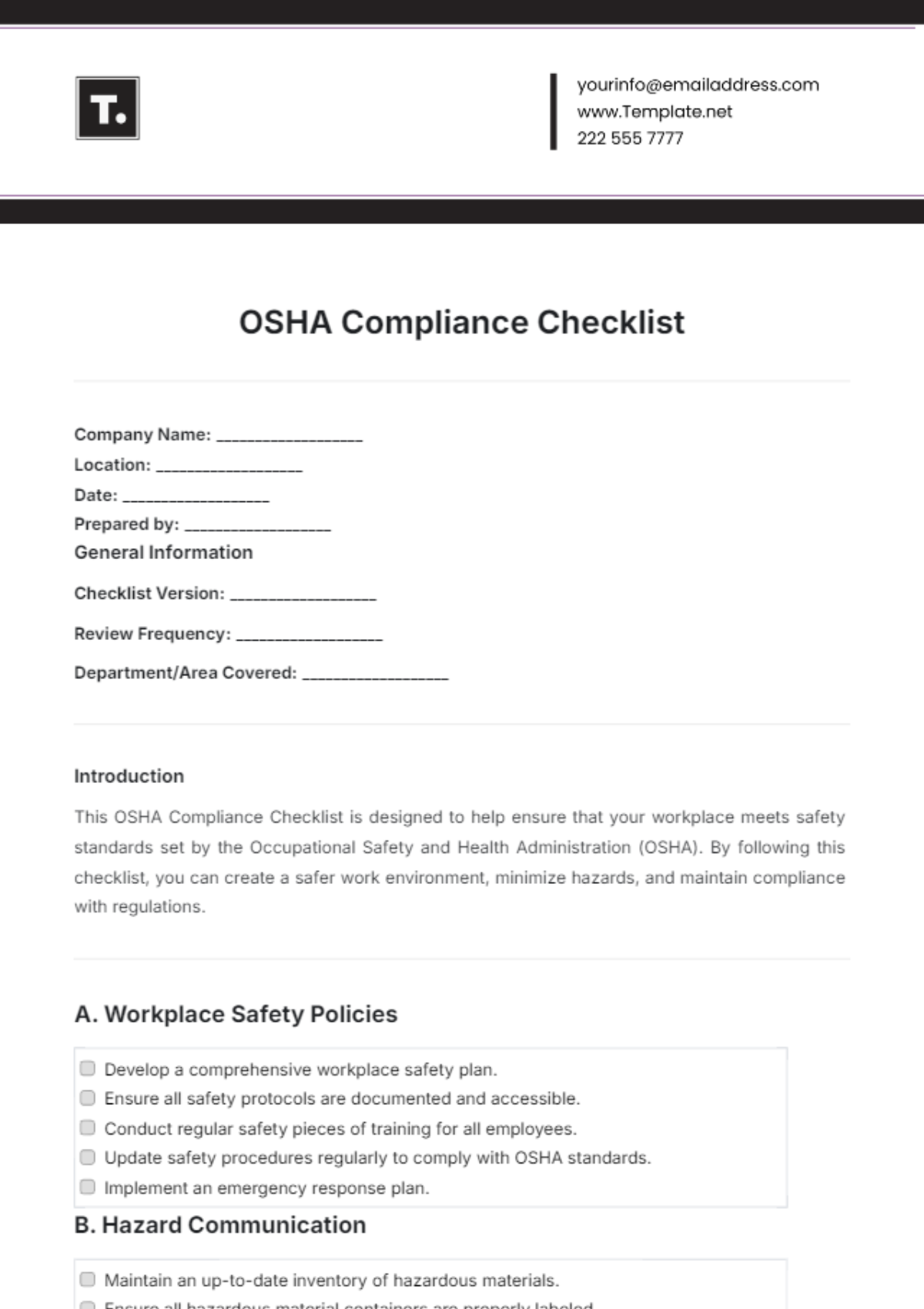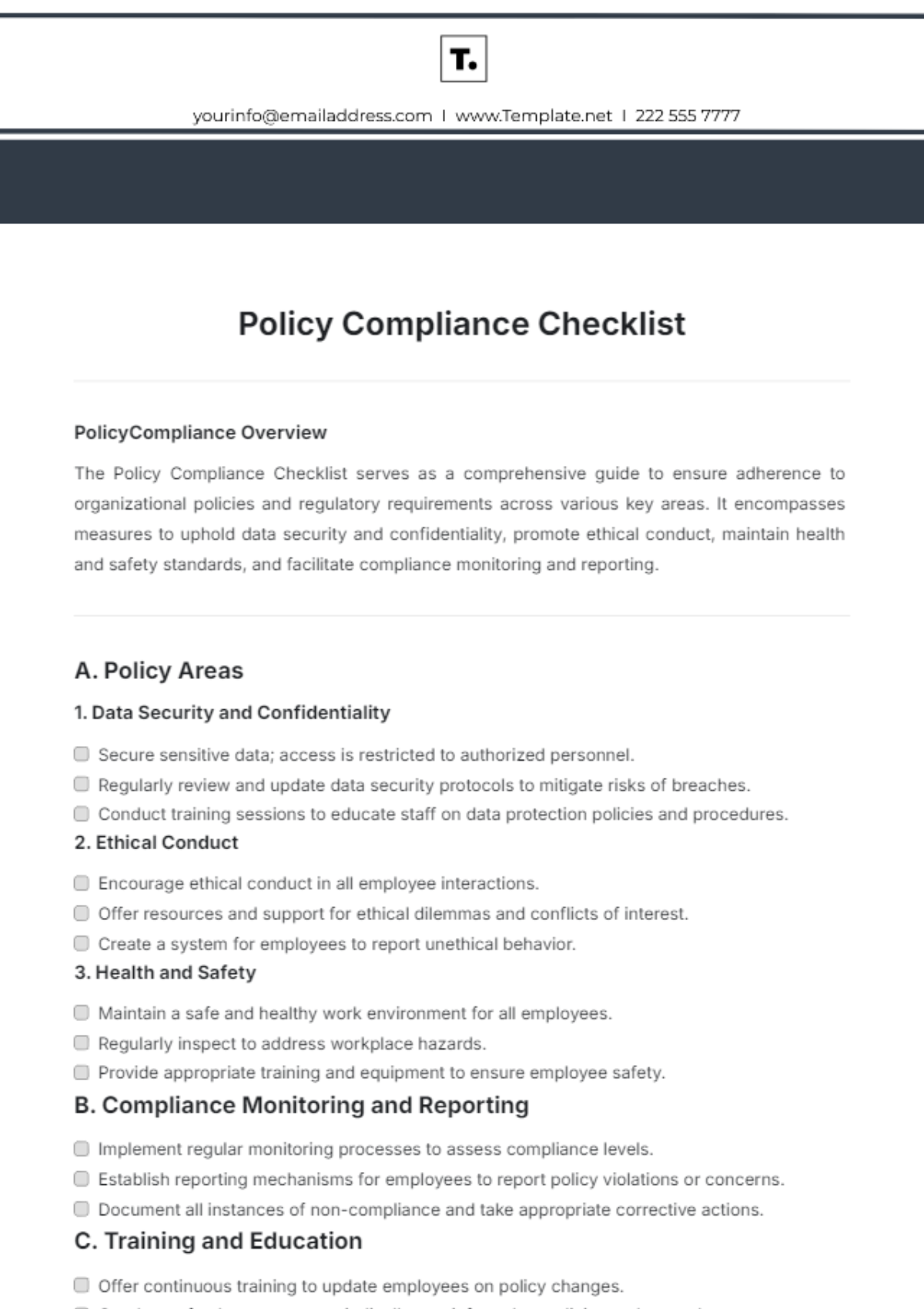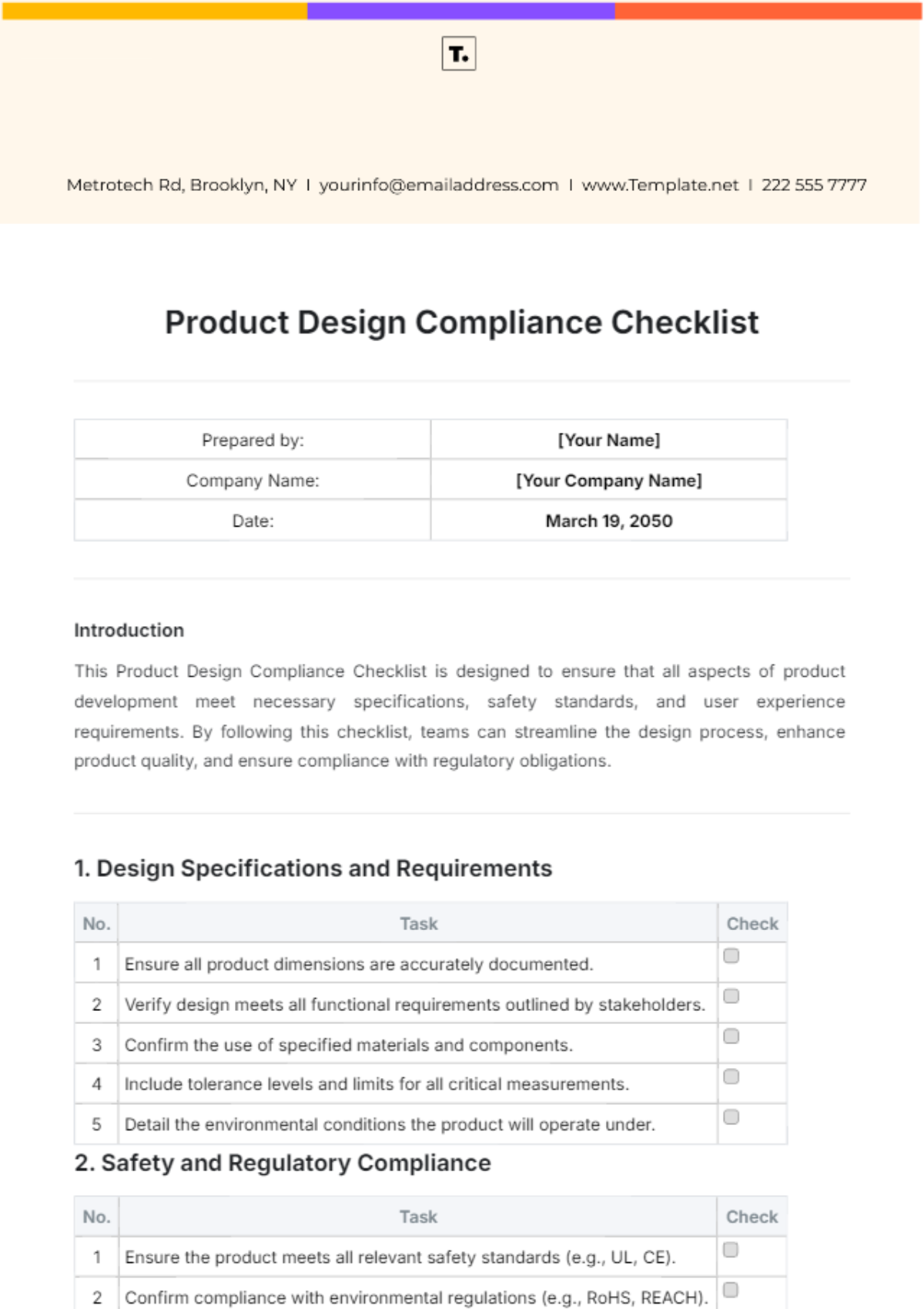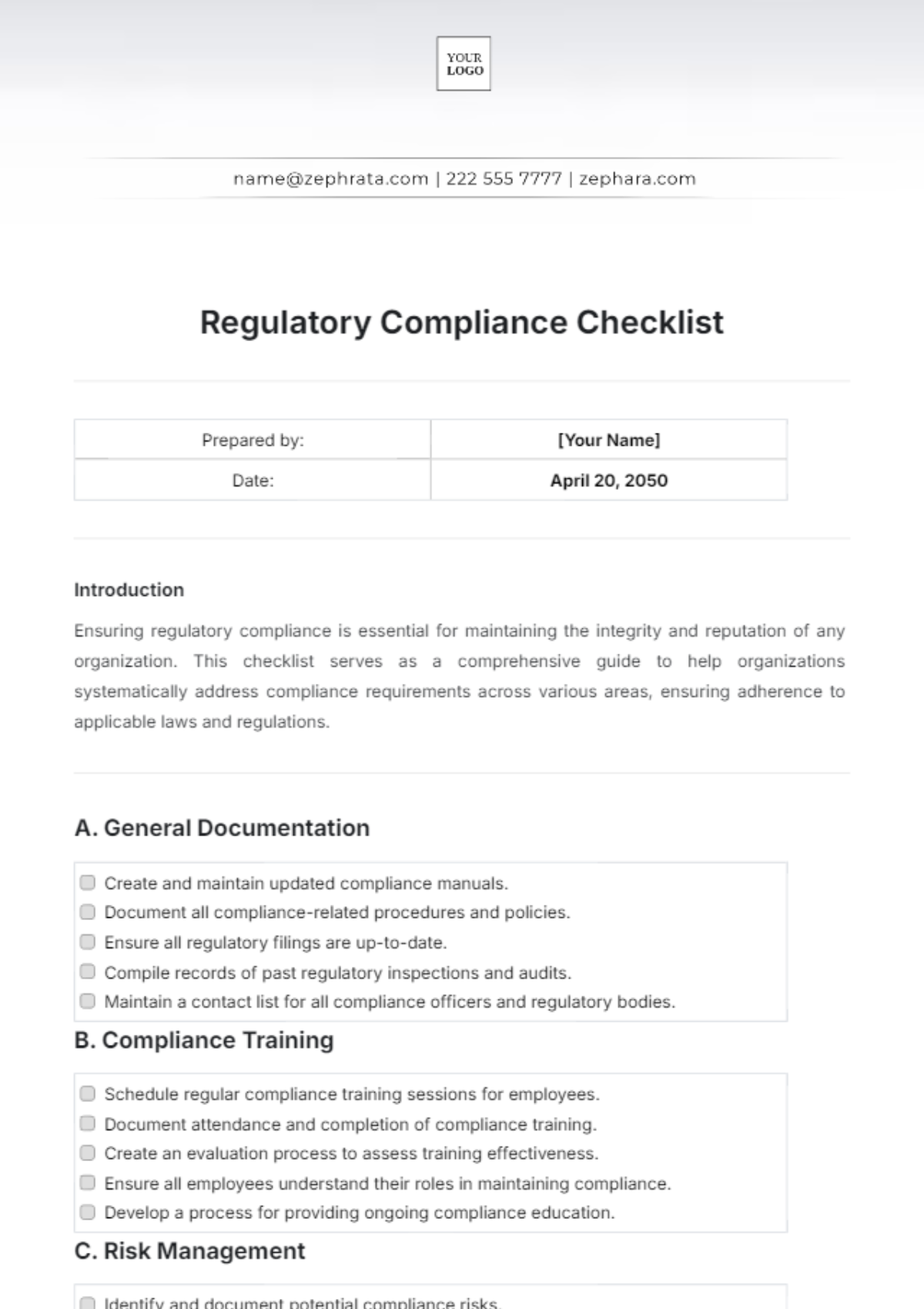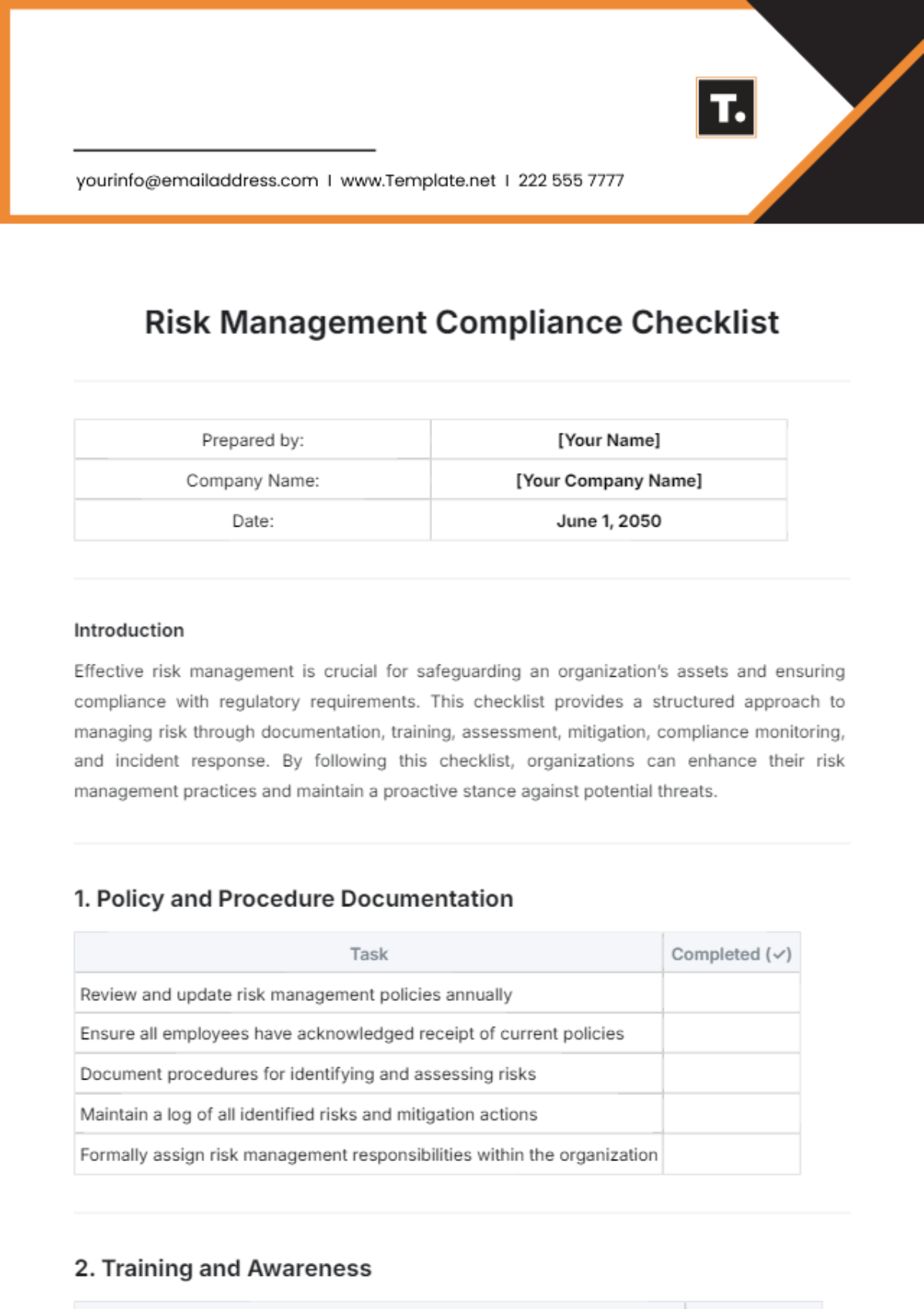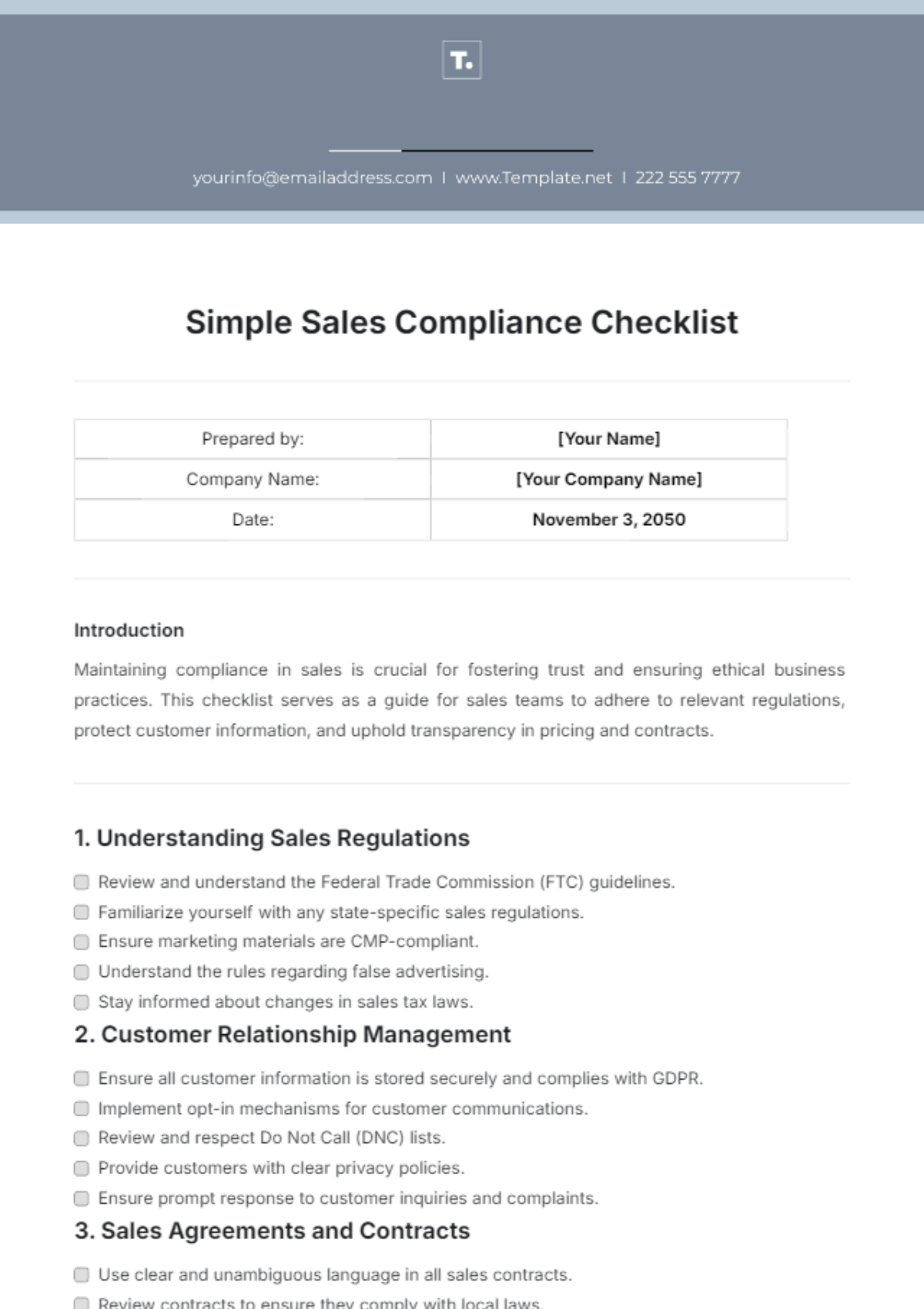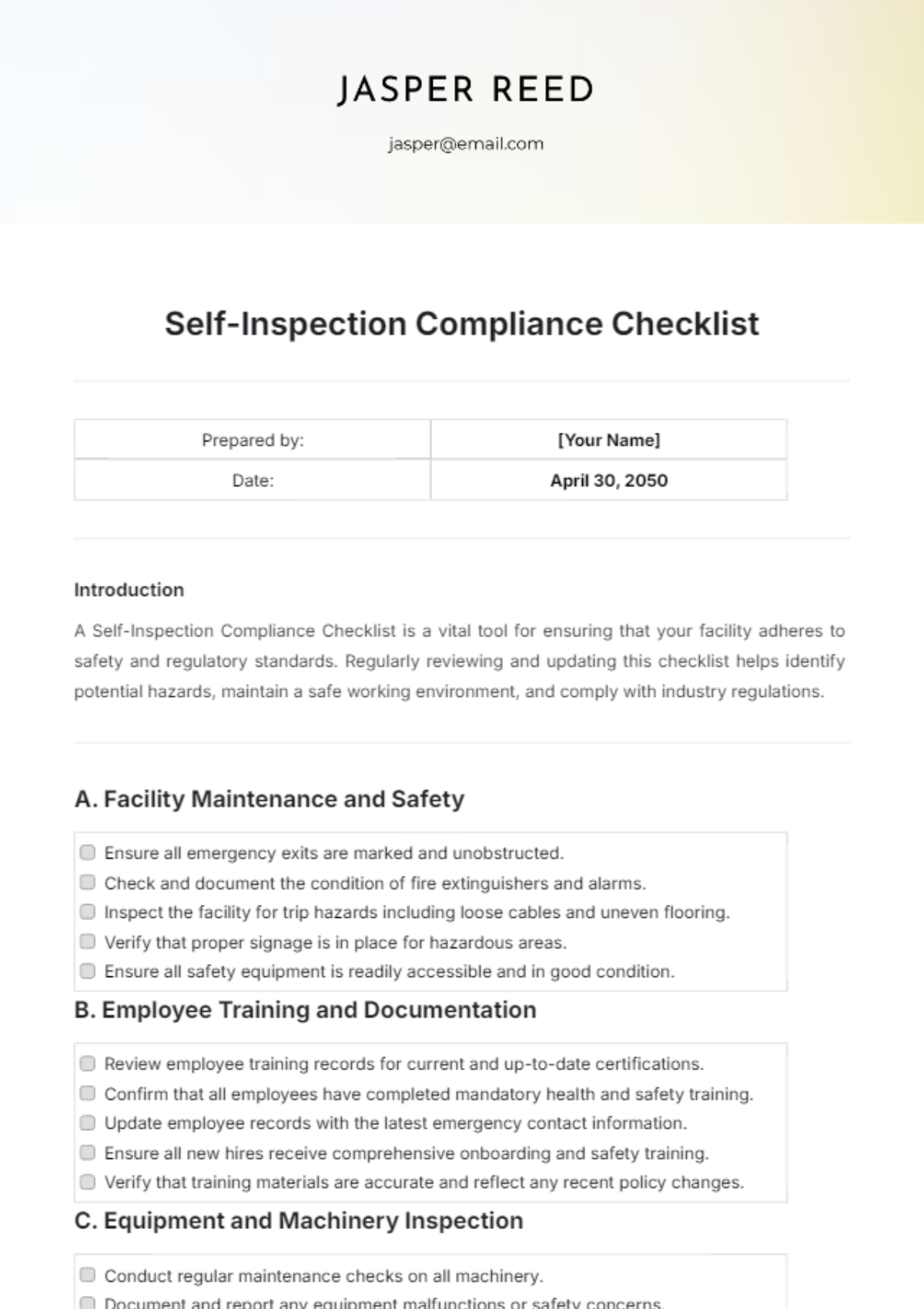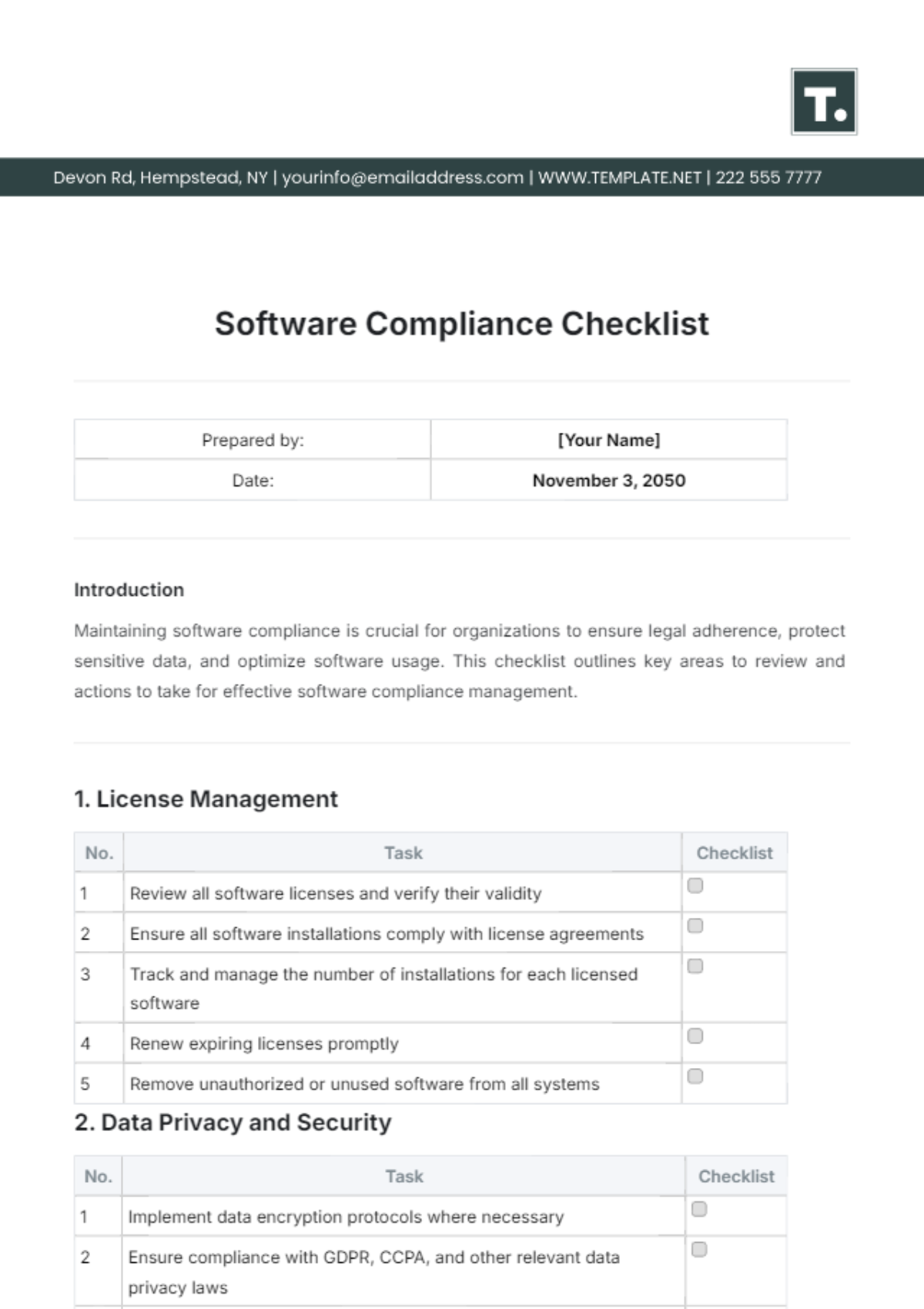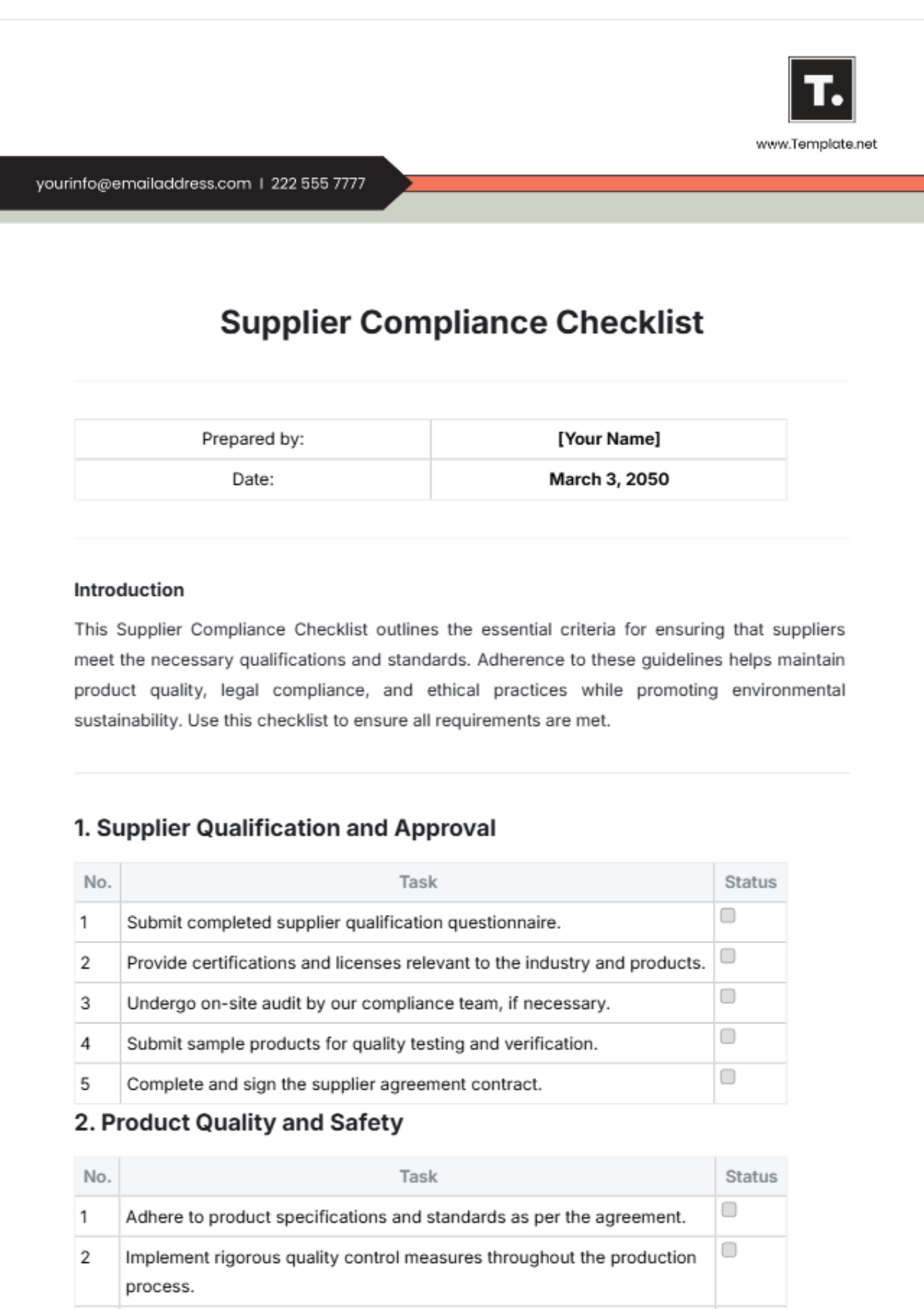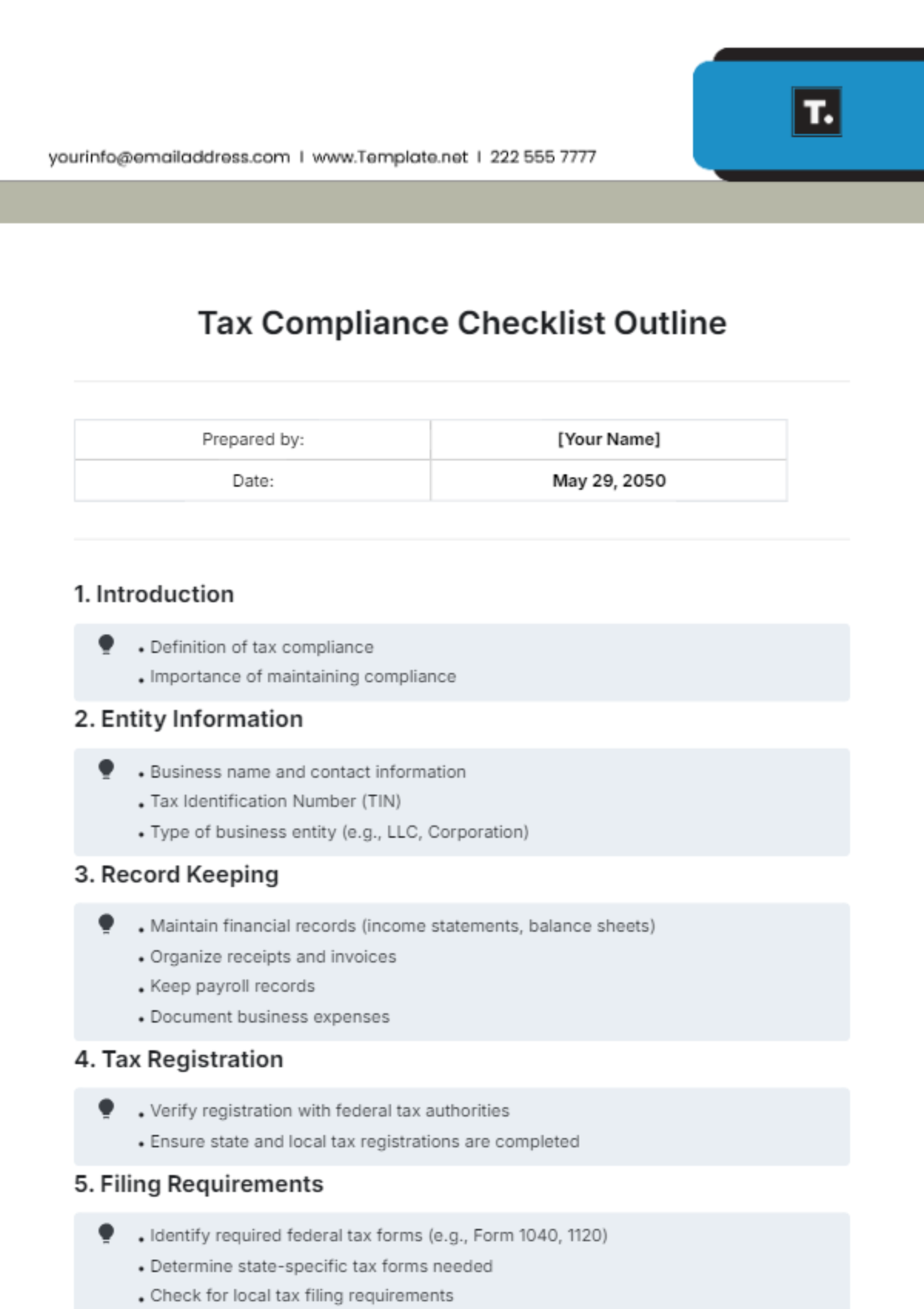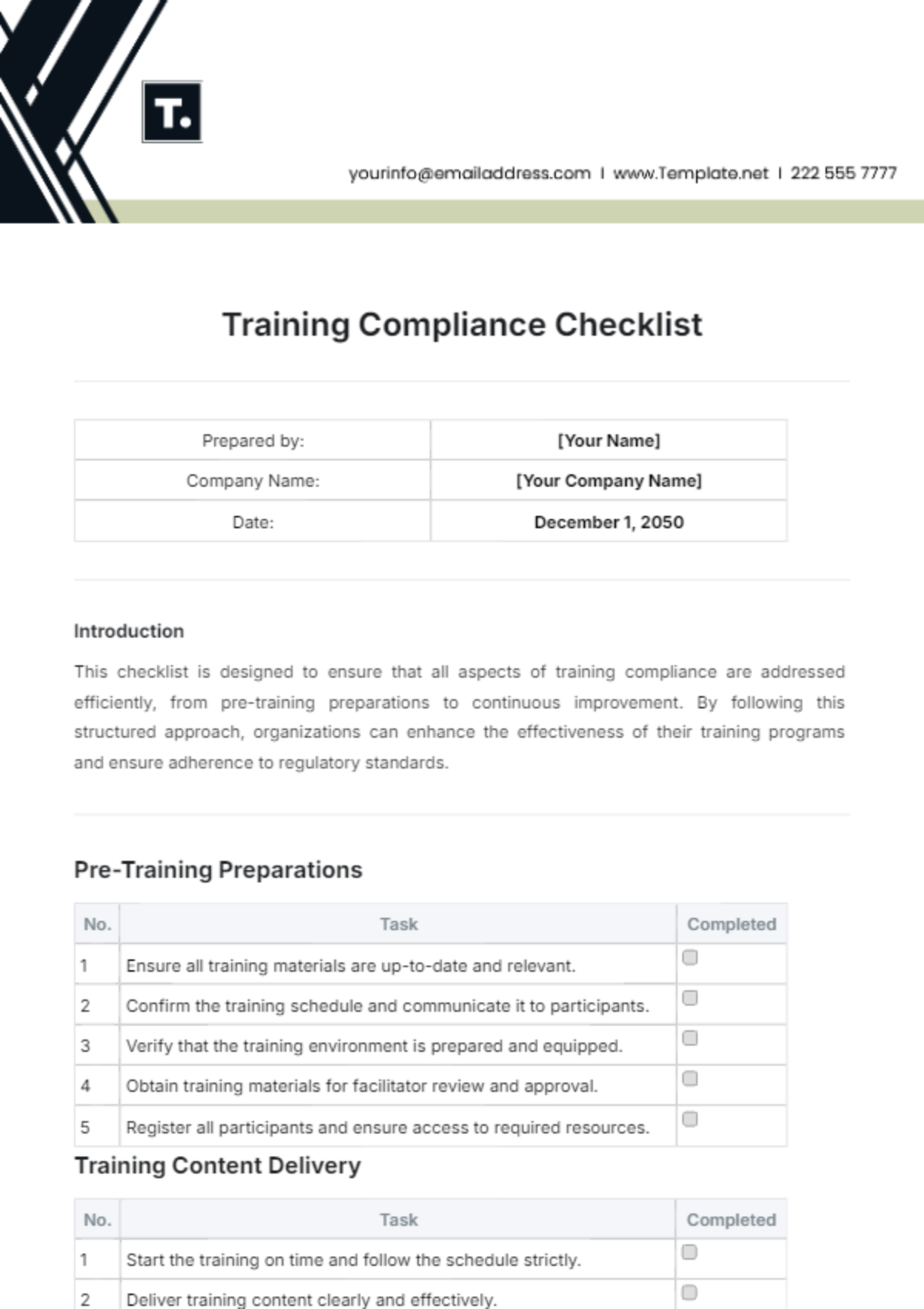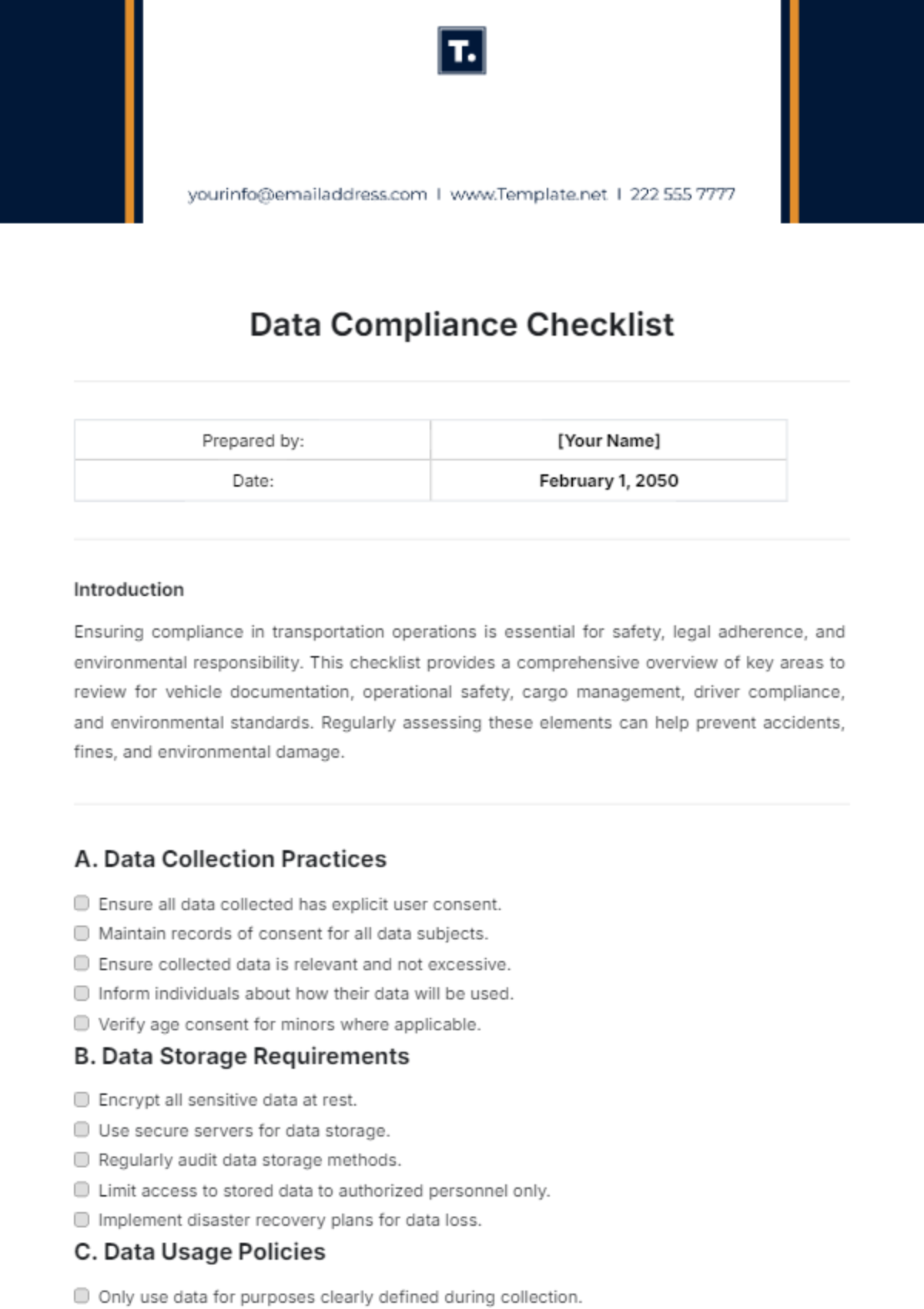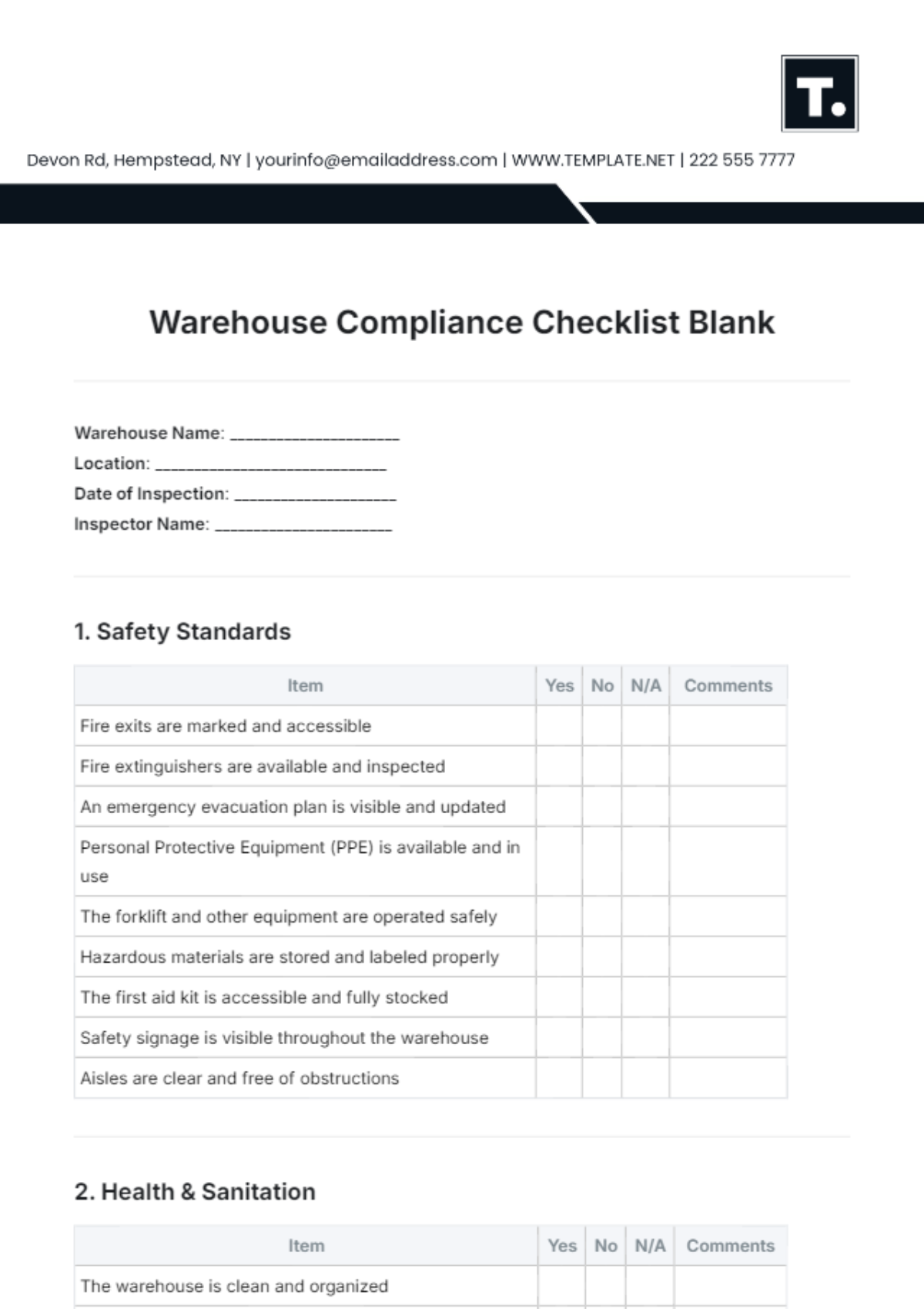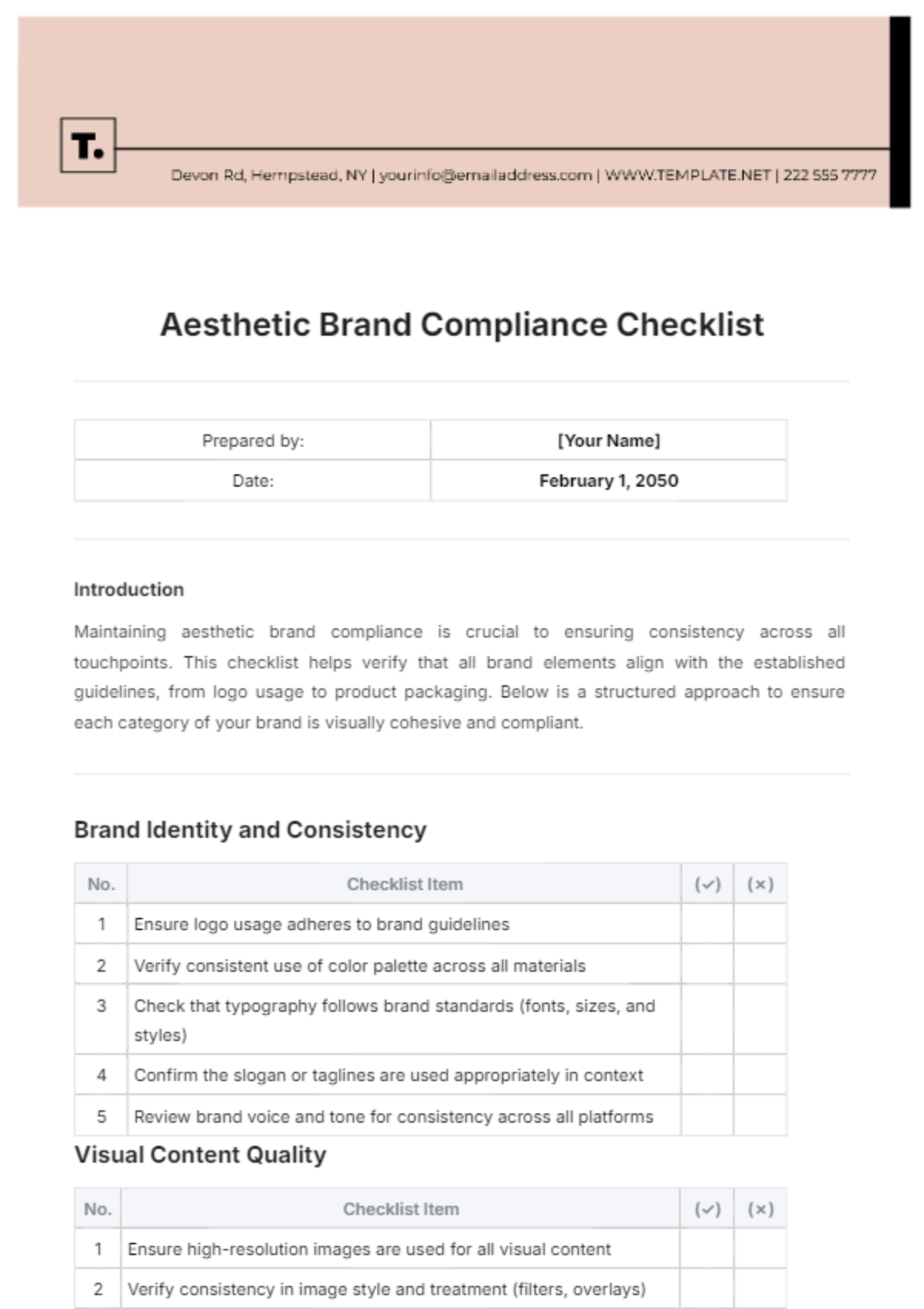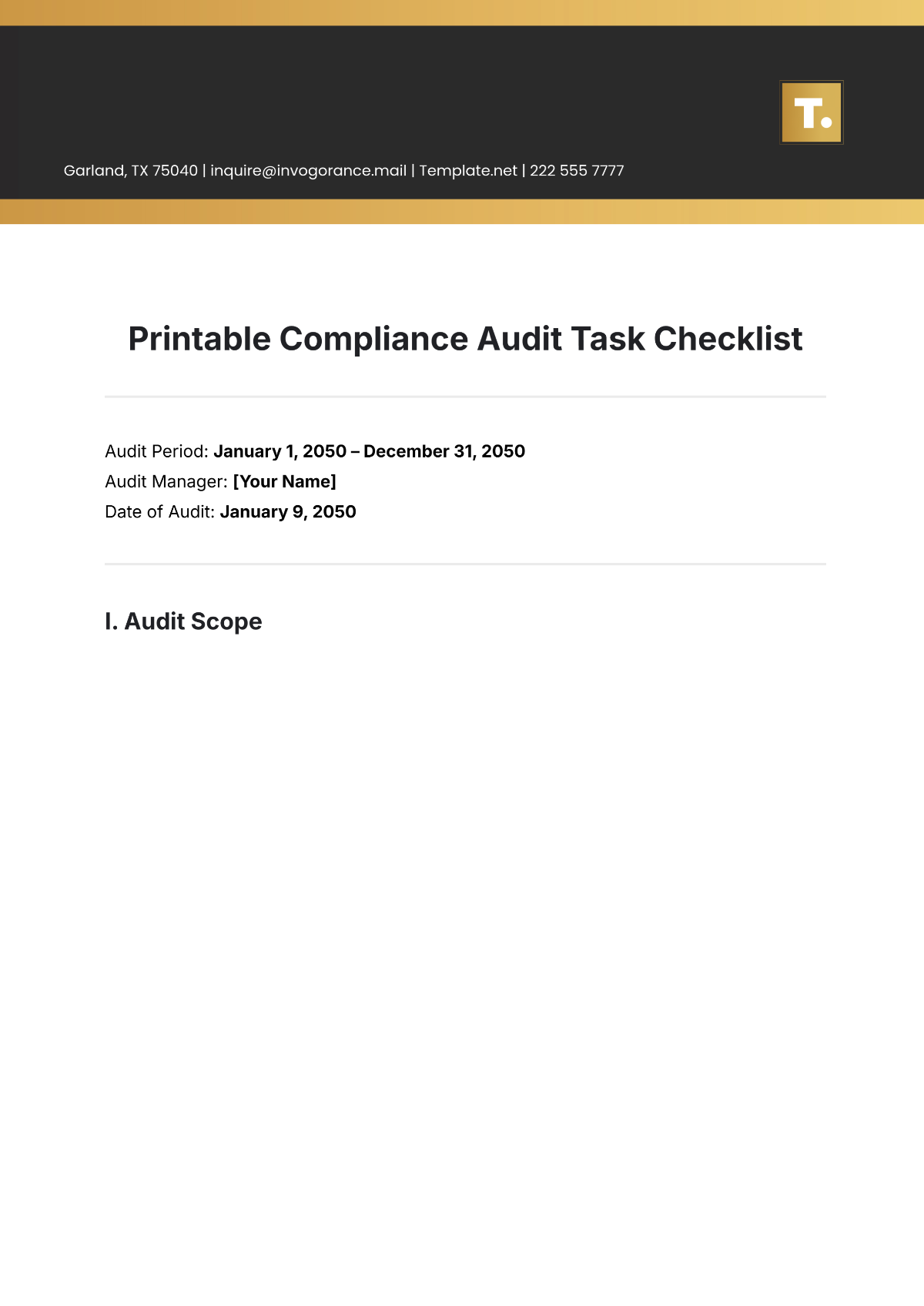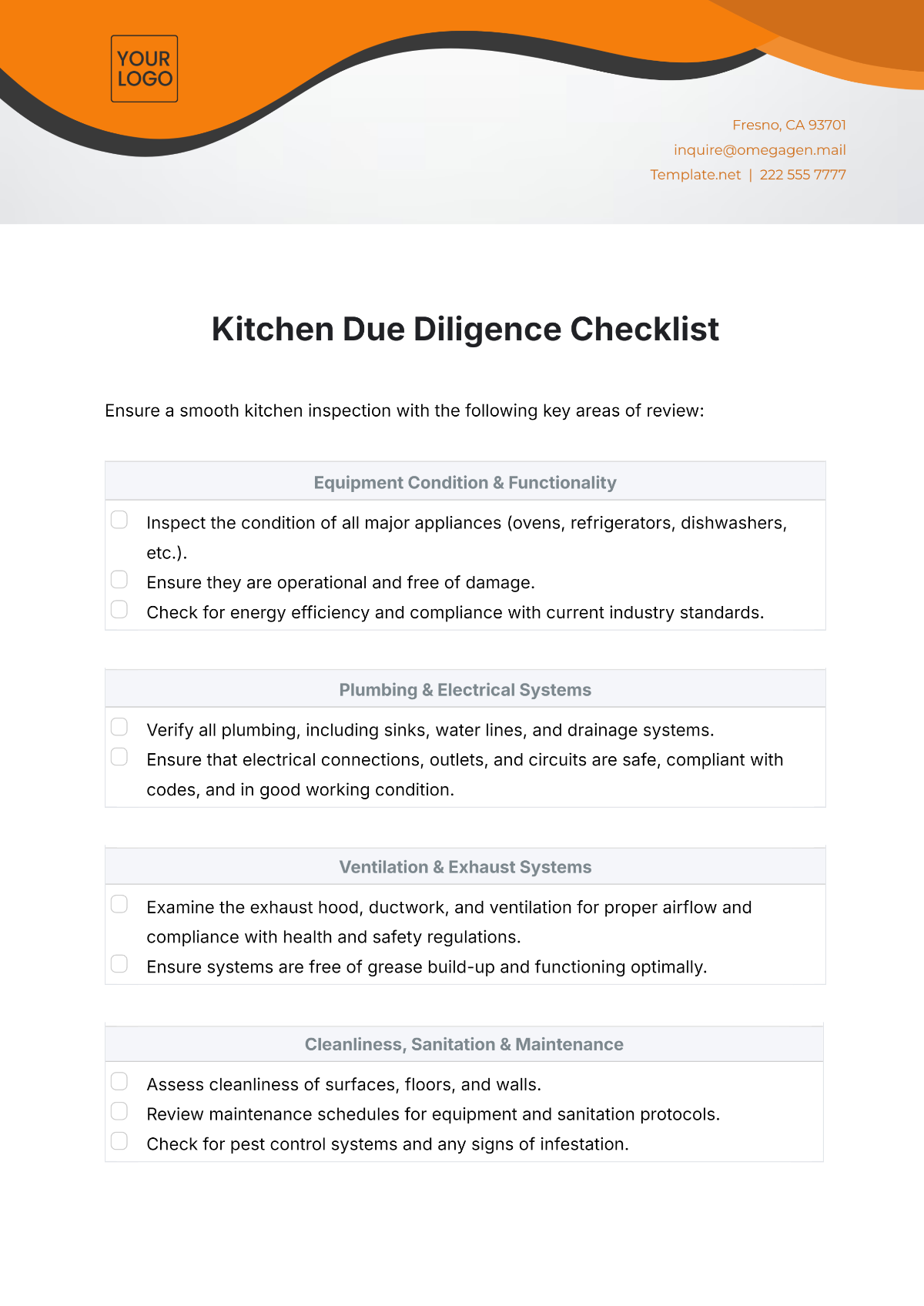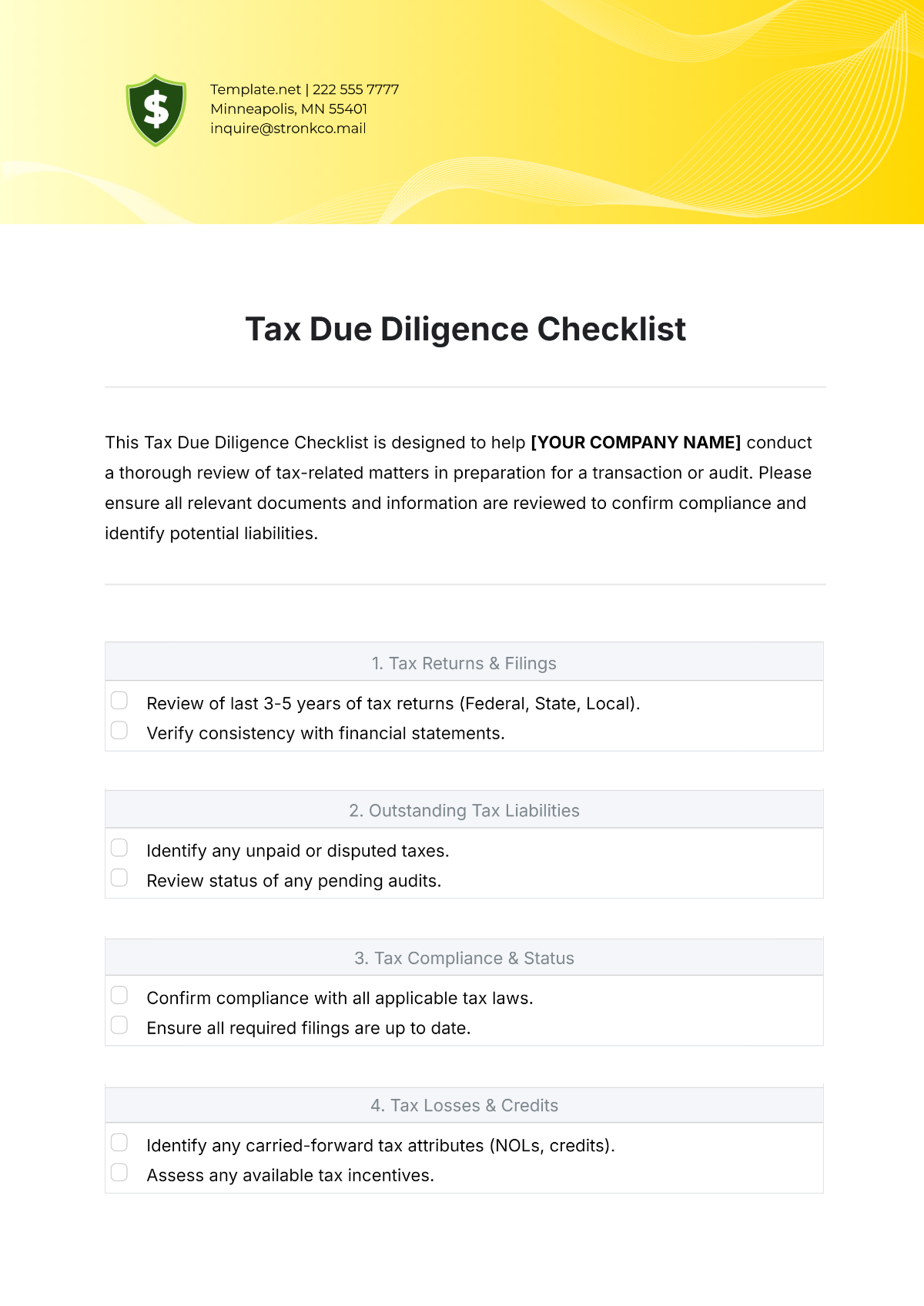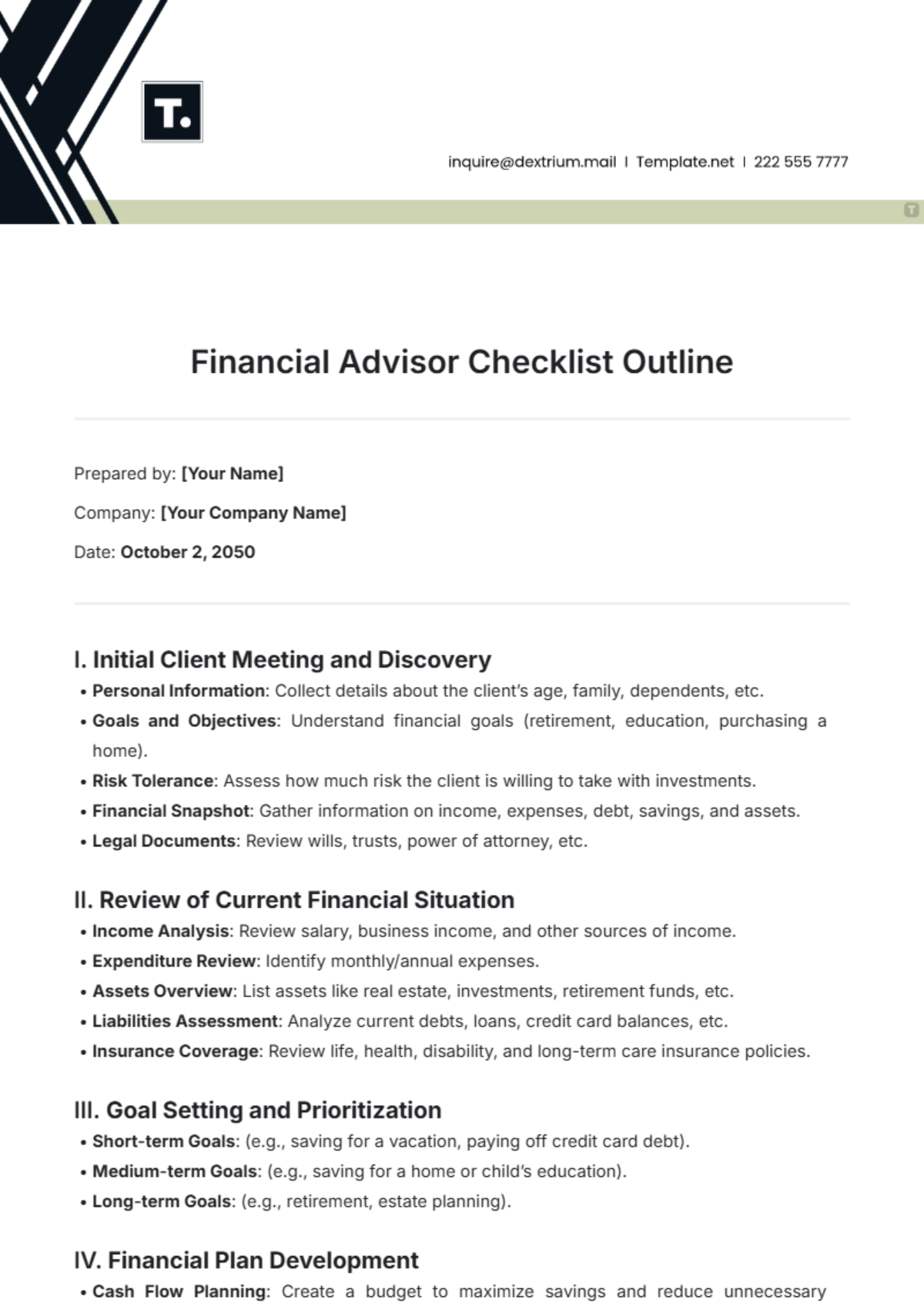CSR Compliance Checklist
I. Compliance Overview
Objective: Ensure that [YOUR COMPANY NAME] adheres to Corporate Social Responsibility (CSR) standards and practices to promote ethical business conduct, environmental sustainability, and social responsibility.
Responsible Party: [YOUR NAME], CSR Manager
Date of Last Review: [DATE]
Next Scheduled Review: [NEXT REVIEW DATE]
II. Ethical Business Conduct
1. Code of Conduct
Develop and communicate a code of conduct that outlines ethical principles, values, and standards of behavior for employees, management, and business partners.
Provide training to employees on the code of conduct and ensure understanding and adherence to ethical business practices.
2. Anti-Corruption Policies
Establish anti-corruption policies and procedures to prevent bribery, extortion, and other corrupt practices in business operations and relationships.
Conduct due diligence on business partners, suppliers, and third parties to assess corruption risks and ensure compliance with anti-corruption laws and regulations.
3. Whistle blower Protection
Implement mechanisms for employees to report unethical conduct, fraud, or wrongdoing anonymously and without fear of retaliation.
Investigate whistle blower complaints promptly and take appropriate action to address reported issues and prevent recurrence.
III. Environmental Sustainability
1. Environmental Policy
Develop and communicate an environmental policy that outlines [Your Company Name]'s commitment to minimizing environmental impact and promoting sustainability.
Set measurable environmental objectives and targets to reduce carbon emissions, energy consumption, waste generation, and water usage.
2. Energy Efficiency
Implement energy-saving measures, such as energy-efficient lighting, HVAC systems, and equipment, to reduce energy consumption and greenhouse gas emissions.
Conduct energy audits to identify opportunities for improving energy efficiency and implementing cost-effective energy conservation measures.
3. Waste Management
Reduce, reuse, and recycle waste materials generated from business operations, manufacturing processes, and packaging to minimize environmental impact.
Implement waste management practices, such as source separation, composting, and hazardous waste disposal, in compliance with applicable regulations.
IV. Social Responsibility
1. Diversity and Inclusion
Promote diversity and inclusion in the workplace by implementing policies and programs to recruit, retain, and advance a diverse workforce.
Provide equal opportunities for employment, training, and career development regardless of race, gender, age, disability, or other protected characteristics.
2. Labor Practices
Ensure compliance with labor laws and regulations regarding working hours, wages, benefits, and workplace safety standards.
Provide a safe and healthy work environment for employees, contractors, and visitors, and implement measures to prevent occupational injuries and illnesses.
3. Community Engagement
Engage with local communities through corporate philanthropy, volunteerism, and social initiatives to address community needs and contribute to sustainable development.
Establish partnerships with non-profit organizations, NGOs, and community groups to support education, healthcare, environmental conservation, and social welfare programs.
V. Supply Chain Responsibility
1. Supplier Code of Conduct
Develop and communicate a supplier code of conduct that defines expectations for ethical business conduct, labor practices, environmental stewardship, and human rights.
Conduct supplier assessments and audits to evaluate compliance with the supplier code of conduct and identify opportunities for improvement.
2. Responsible Sourcing
Source materials, components, and products from suppliers that adhere to ethical, environmental, and social standards, including fair labor practices and responsible sourcing of raw materials.
Implement due diligence processes to identify and address risks of human rights abuses, forced labor, child labor, and environmental harm in the supply chain.
VI. Reporting and Transparency
1. Sustainability Reporting
Prepare and publish annual sustainability reports or CSR disclosures that provide stakeholders with transparent and accurate information on [Your Company Name]'s social, environmental, and economic performance.
Use recognized sustainability reporting frameworks, such as GRI, SASB, or CDP, to guide the disclosure of key sustainability metrics, initiatives, and performance indicators.
2. Stakeholder Engagement
Engage with stakeholders, including investors, customers, employees, suppliers, and communities, to solicit feedback, address concerns, and build trust through open and transparent communication.
Incorporate stakeholder input into decision-making processes and strategic planning to ensure alignment with stakeholder expectations and priorities.
VII. Continuous Improvement
1. Performance Monitoring
Monitor and measure CSR performance metrics and key performance indicators (KPIs) to track progress, identify areas for improvement, and demonstrate continuous improvement over time.
Conduct regular reviews and evaluations of CSR programs, initiatives, and strategies to assess effectiveness, impact, and alignment with organizational goals and values.
2. Stakeholder Engagement
Solicit feedback from stakeholders on CSR initiatives, practices, and performance through surveys, focus groups, interviews, and other engagement mechanisms.
Use stakeholder feedback to identify opportunities for innovation, collaboration, and partnership to address emerging sustainability challenges and social issues.
VIII. Signature
By signing below, you acknowledge that you have reviewed and understand the contents of this CSR compliance checklist and affirm [YOUR COMPANY NAME]'s commitment to corporate social responsibility and sustainable business practices.

CSR Officer
[YOUR COMPANY NAME]
Date: [DATE]
